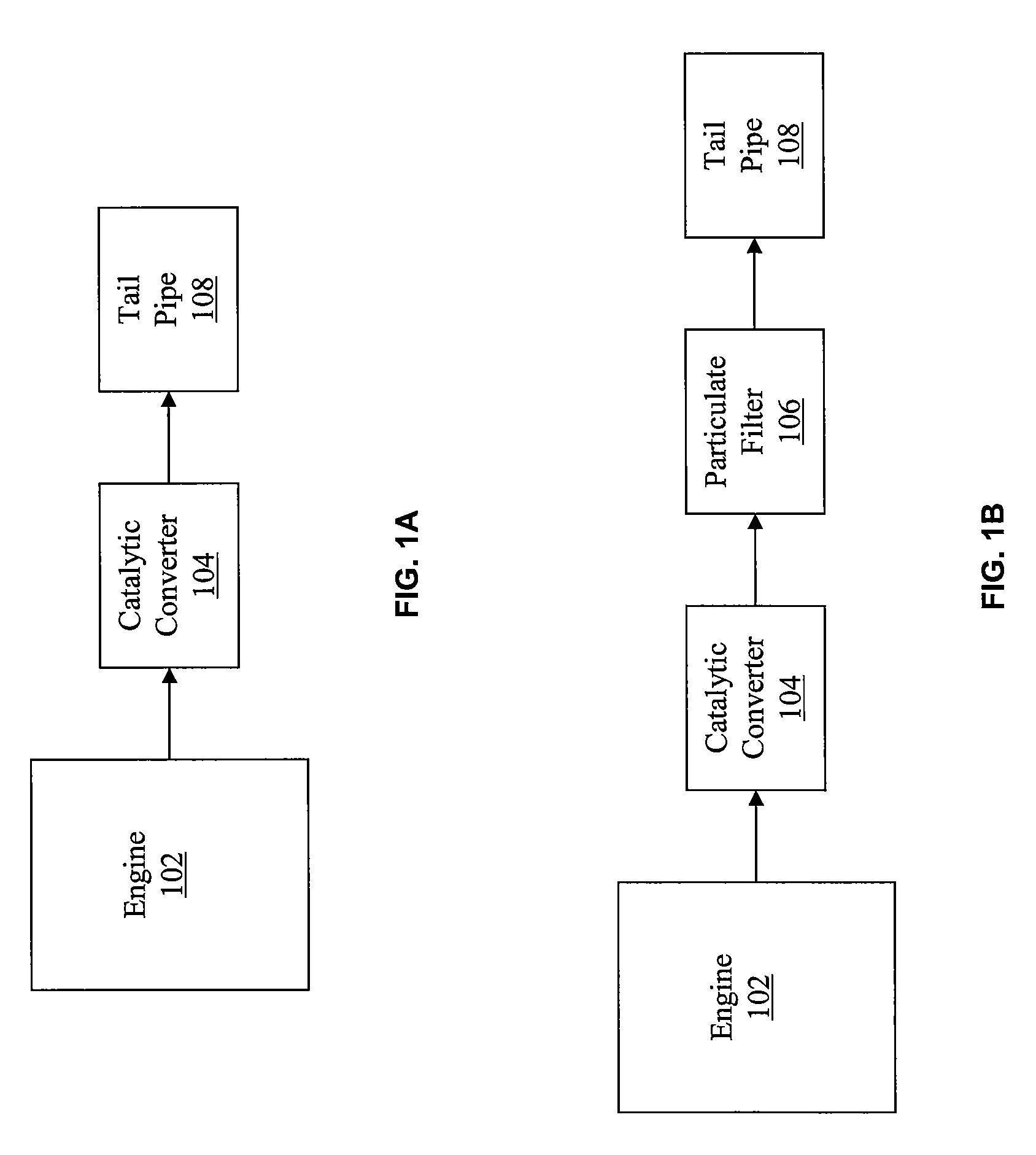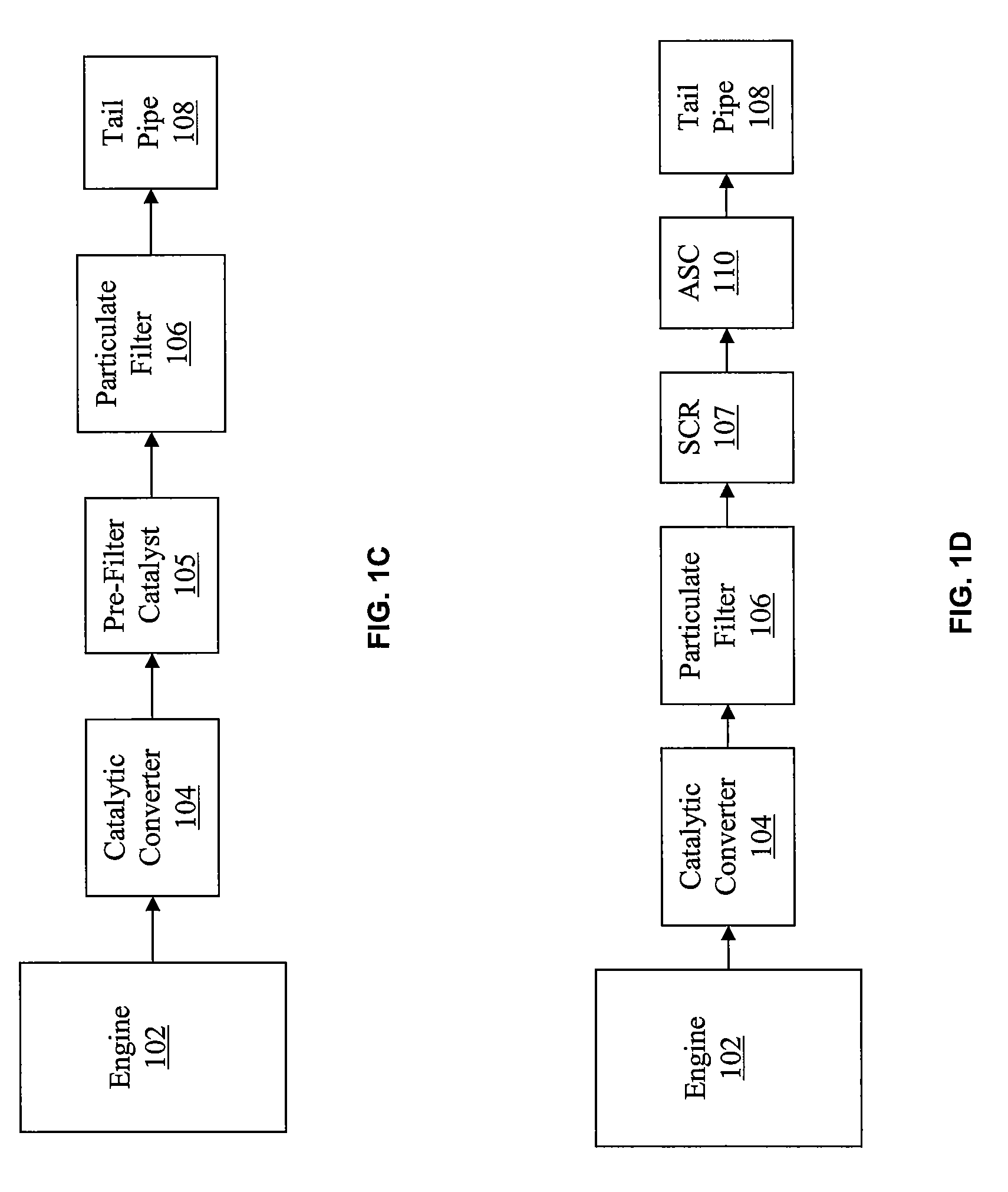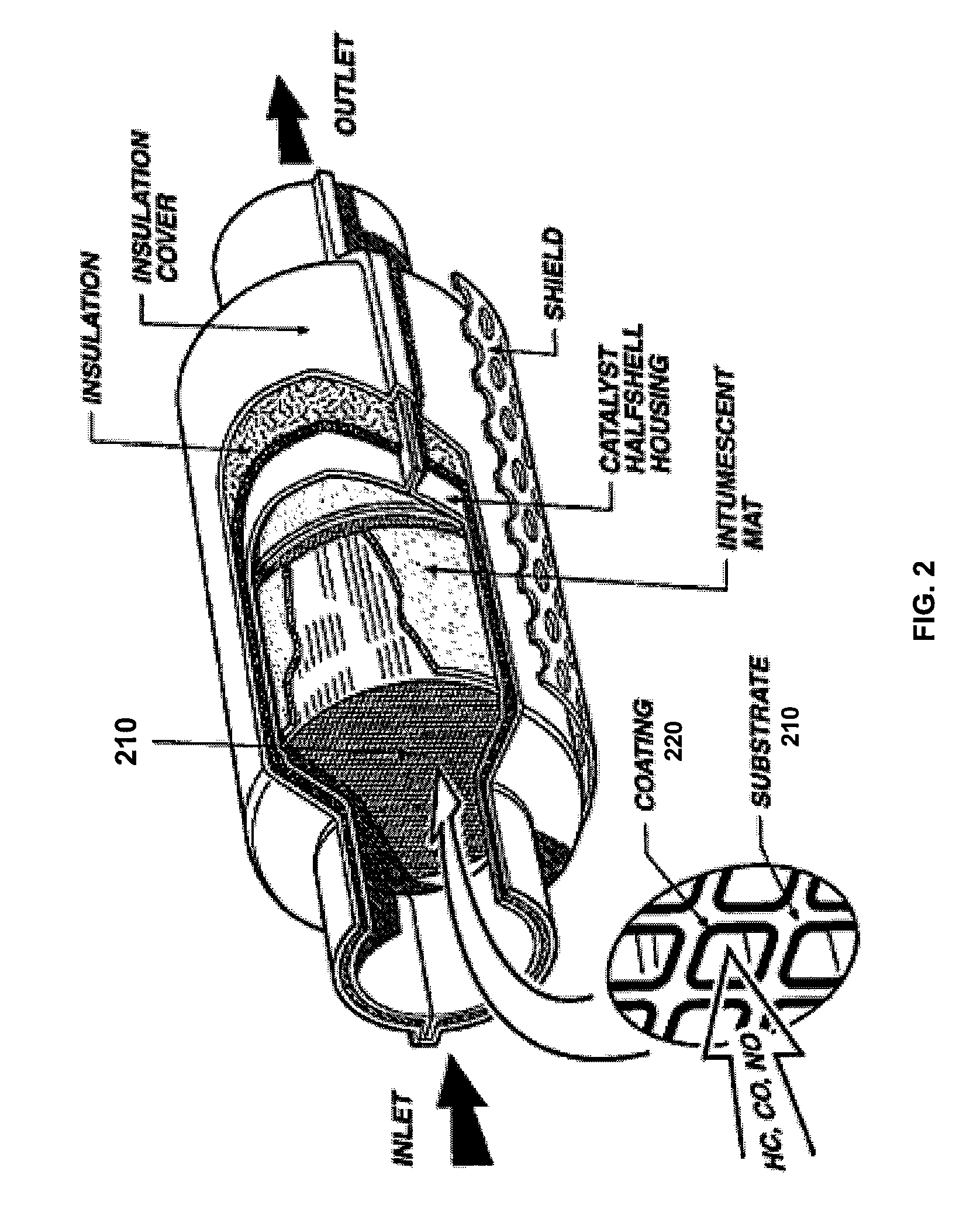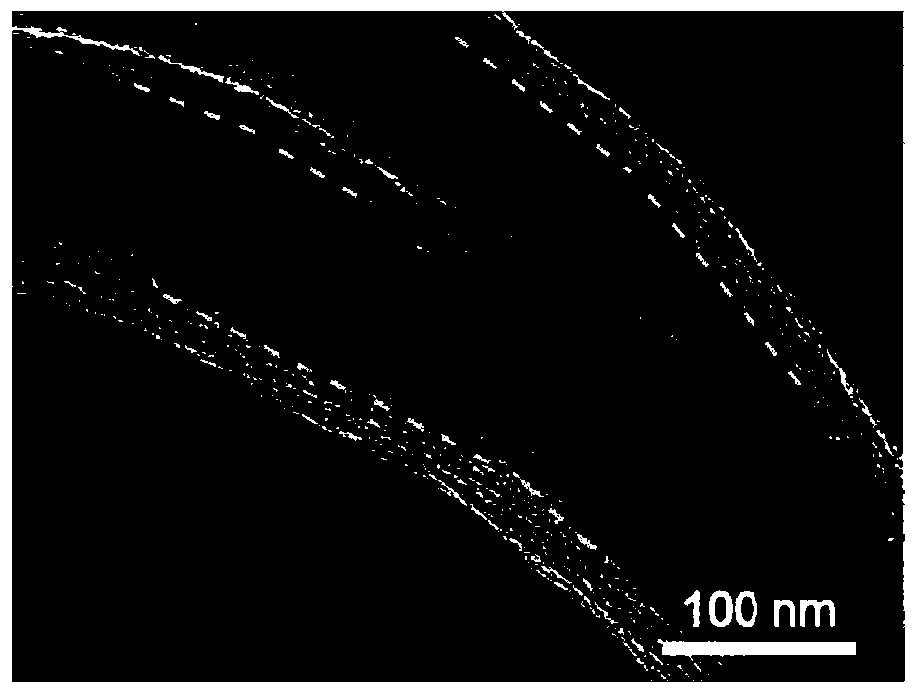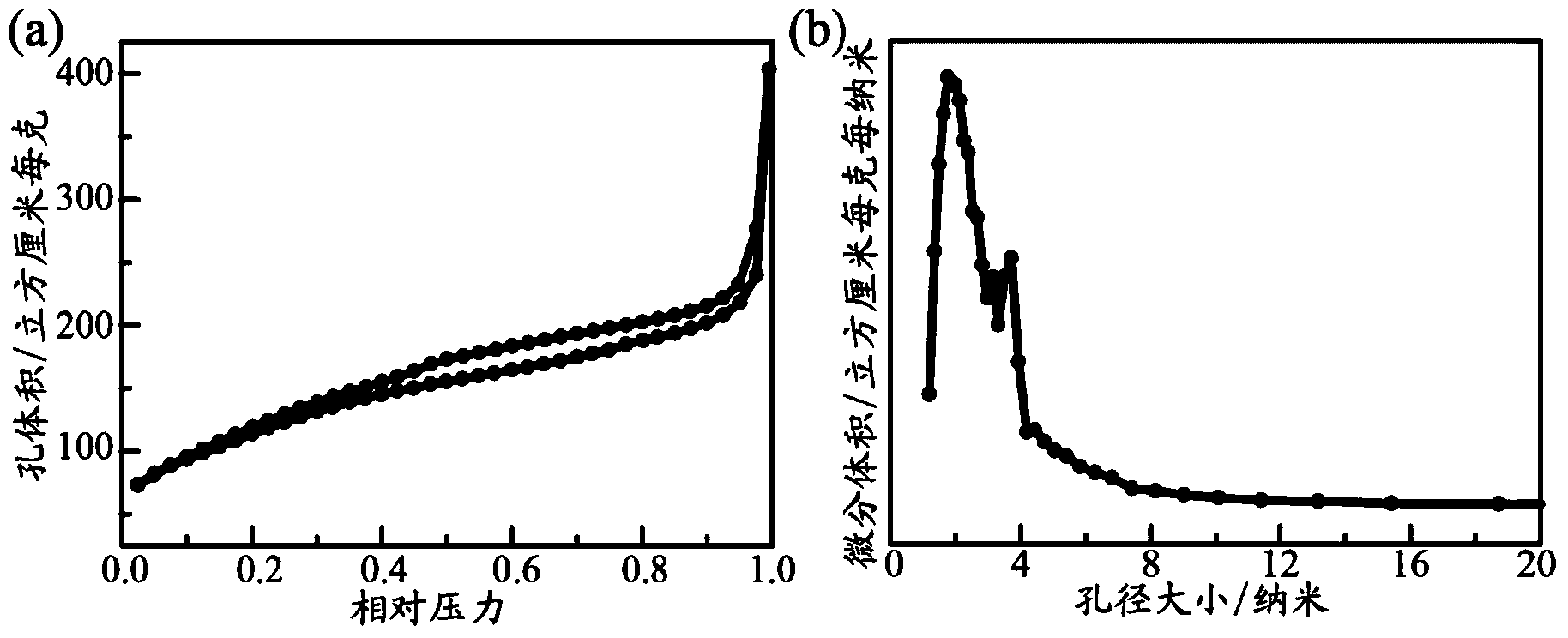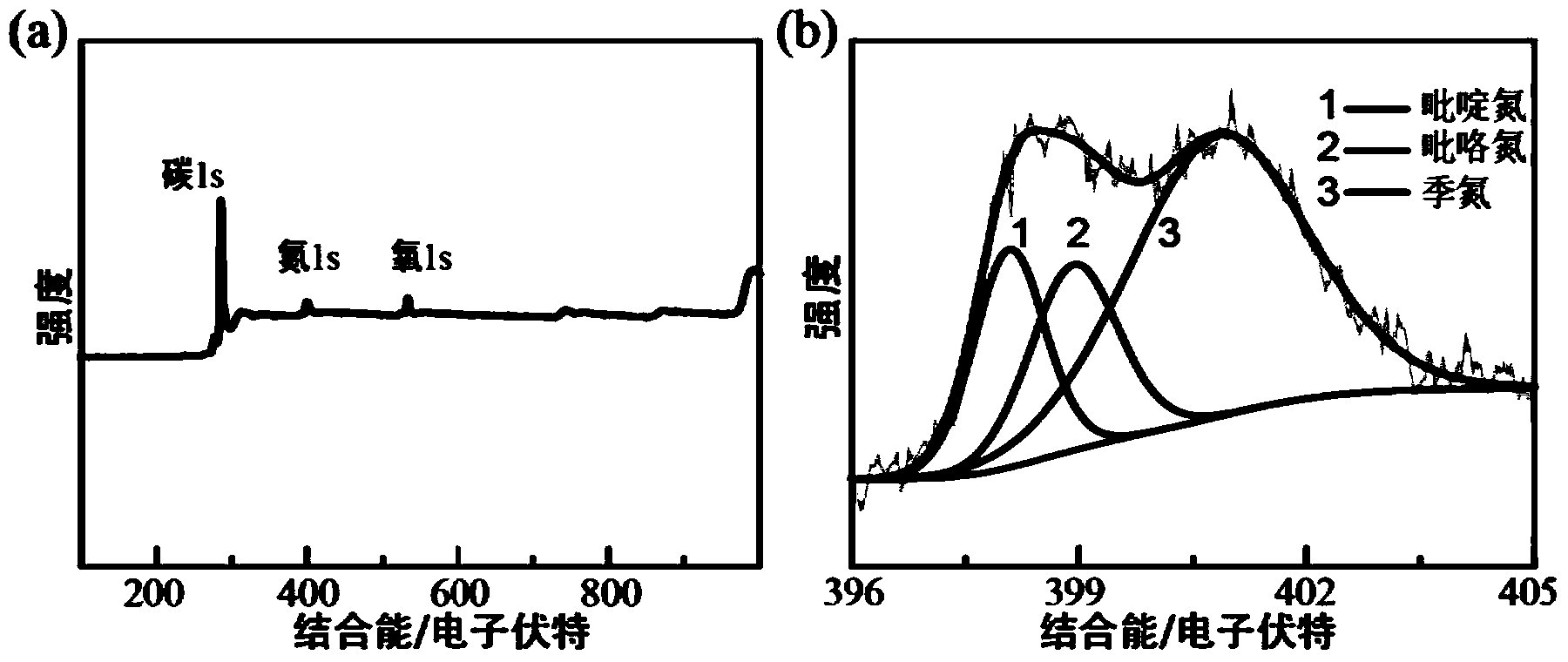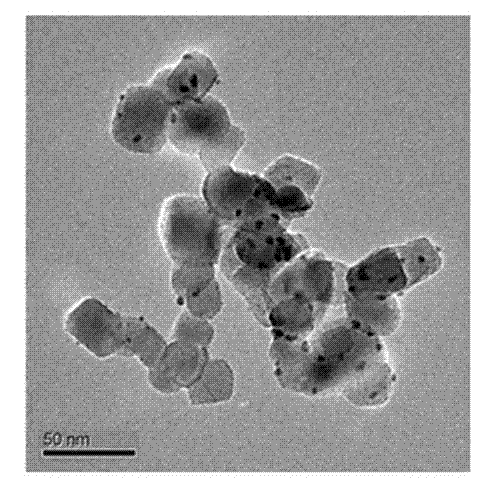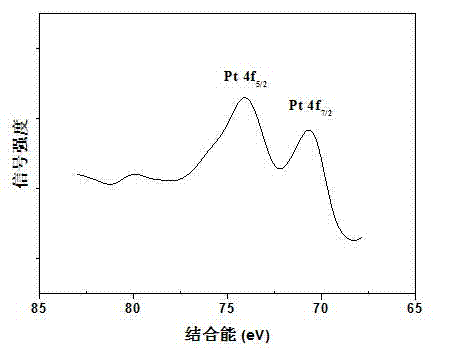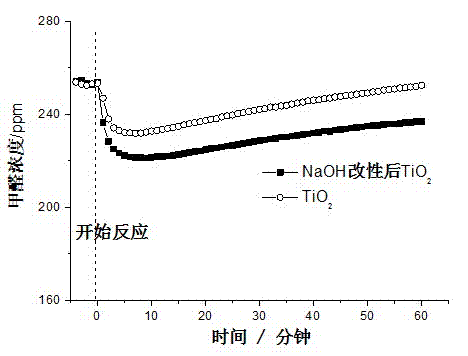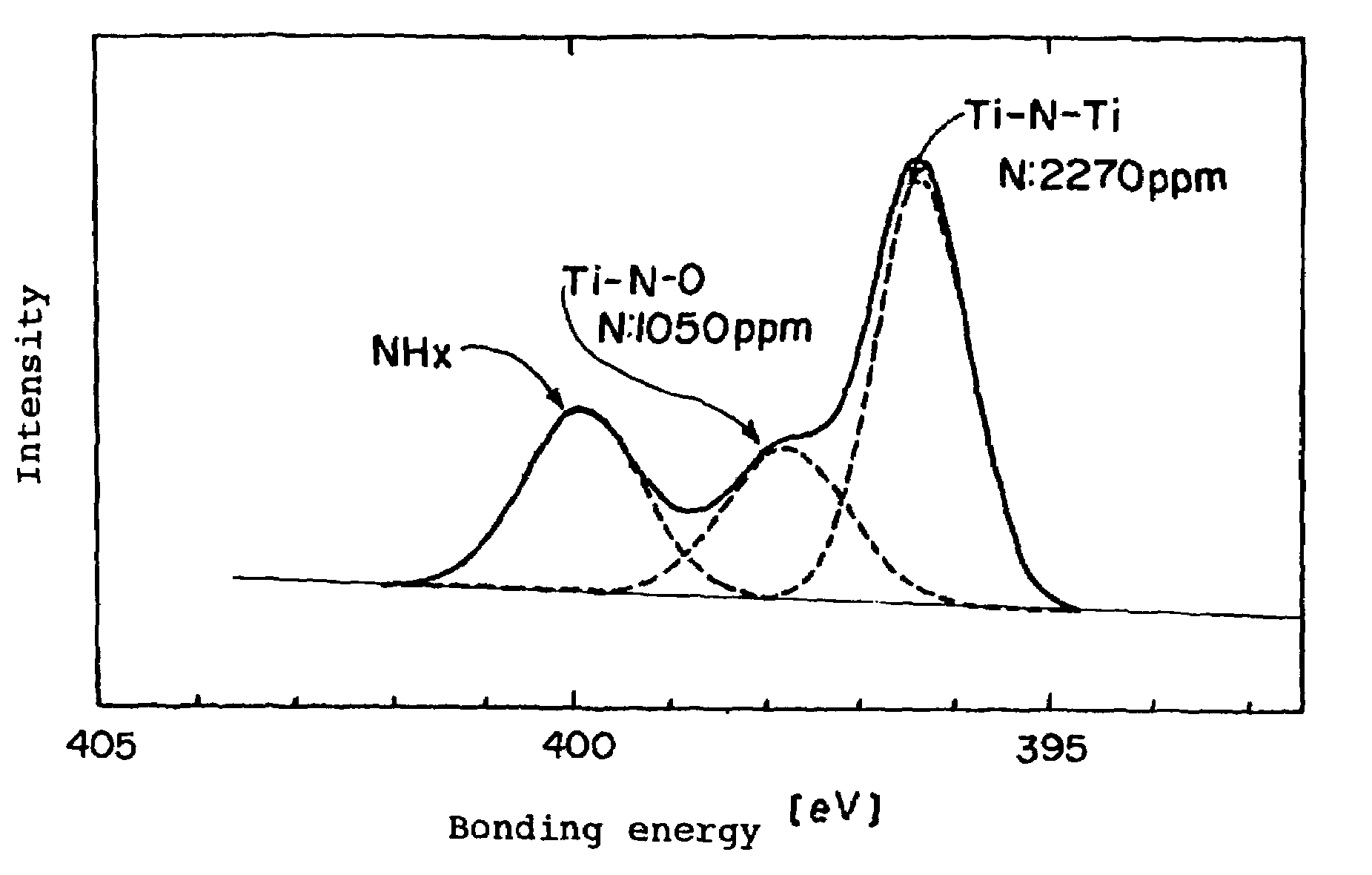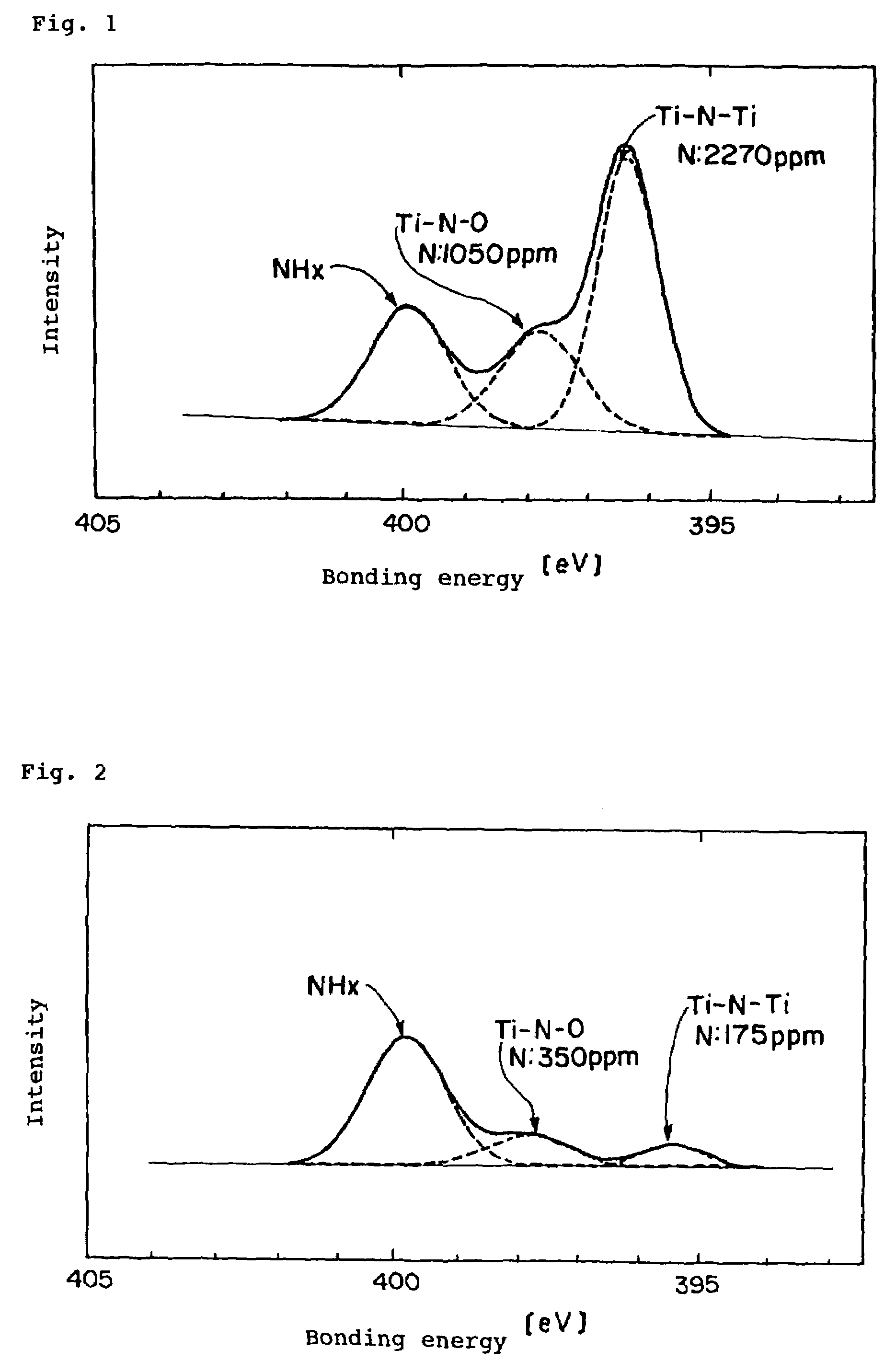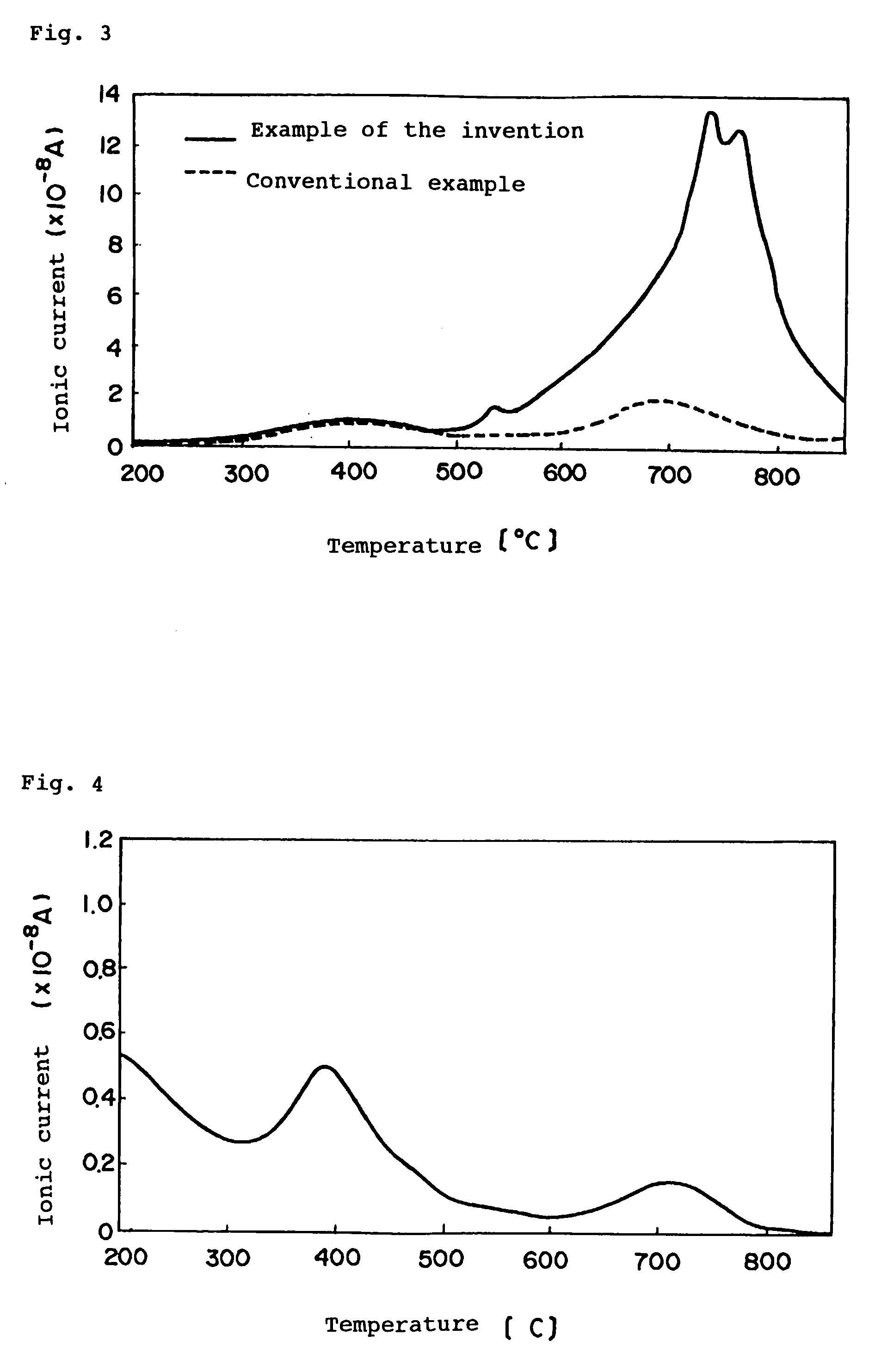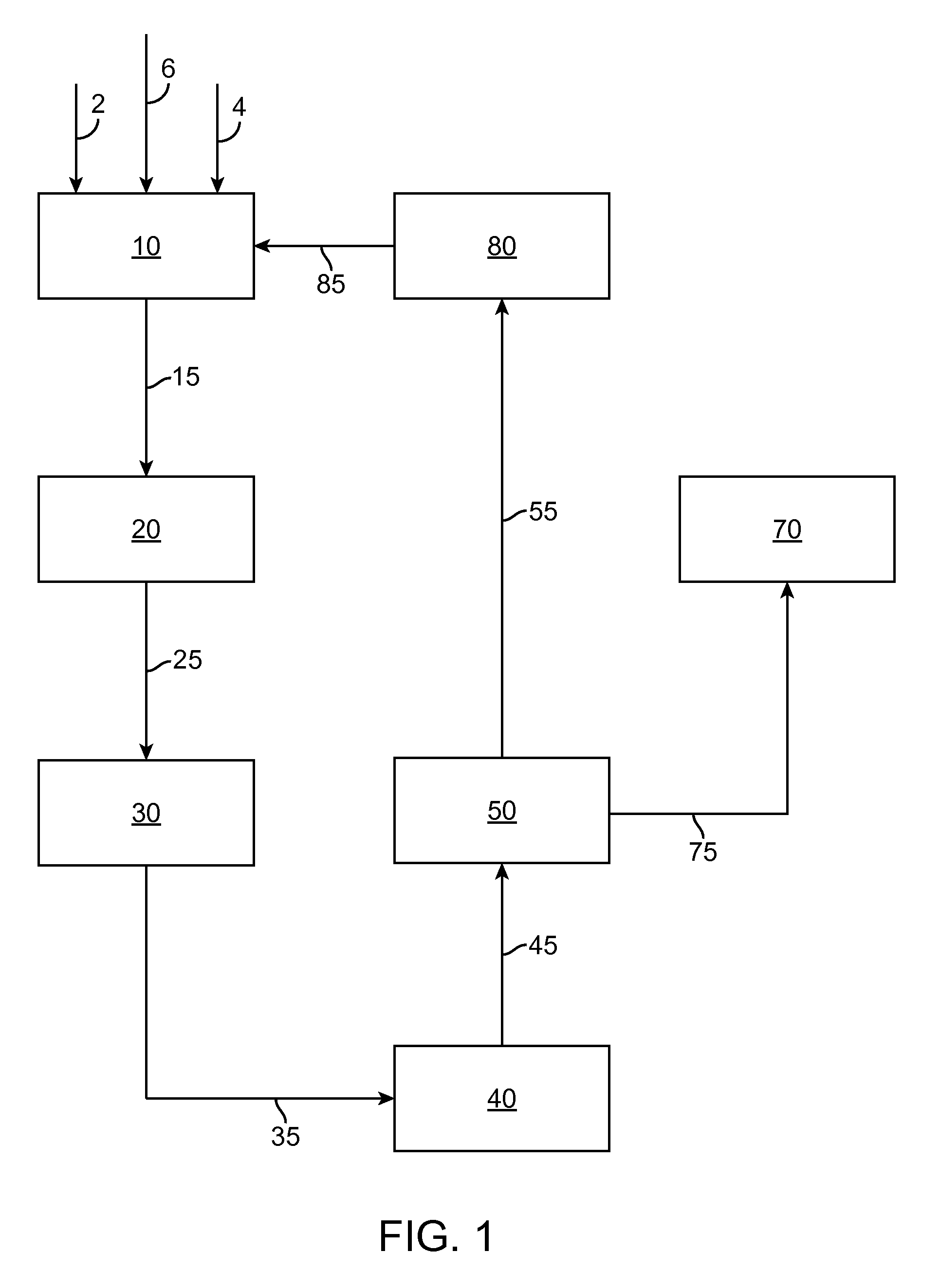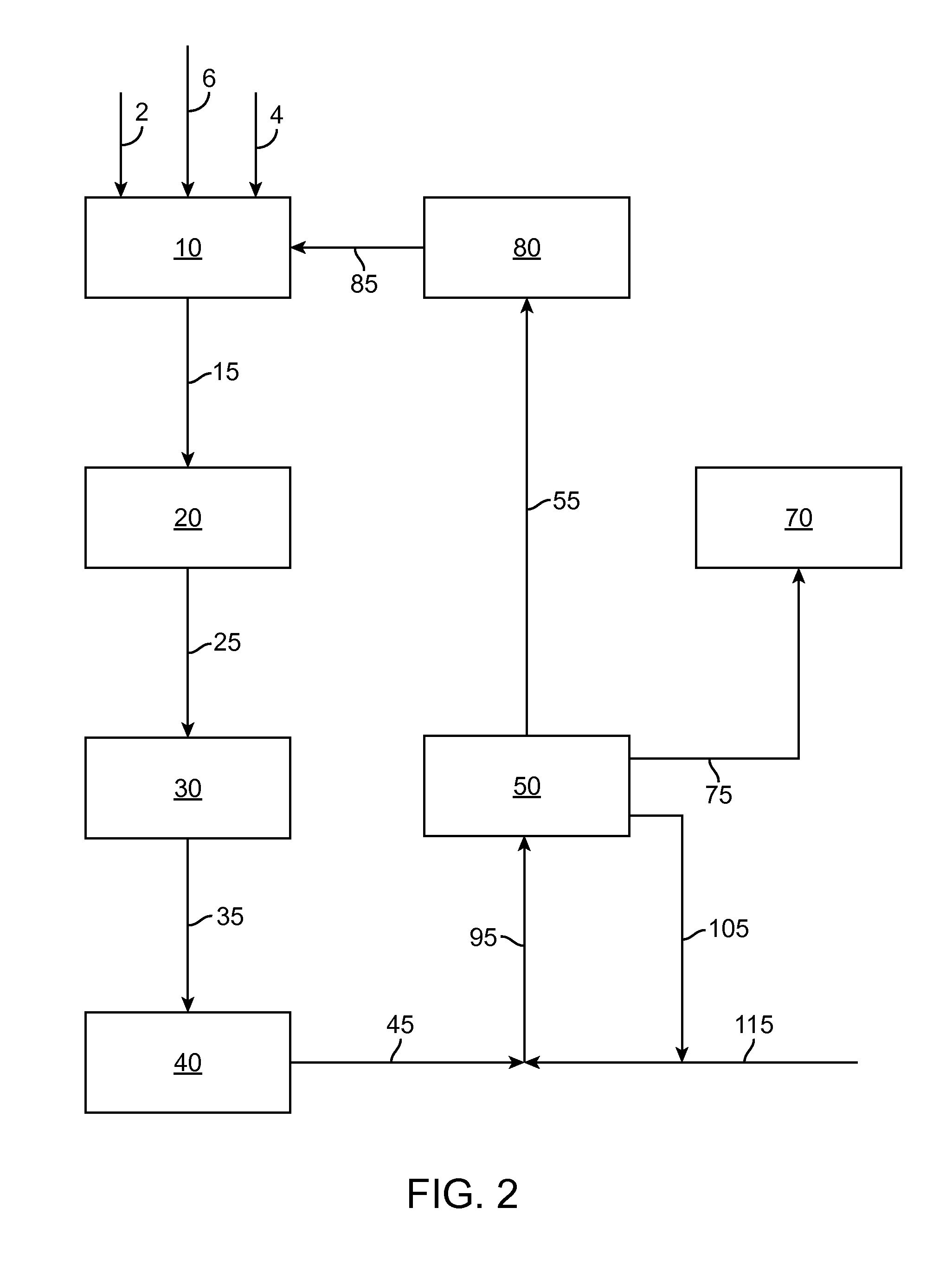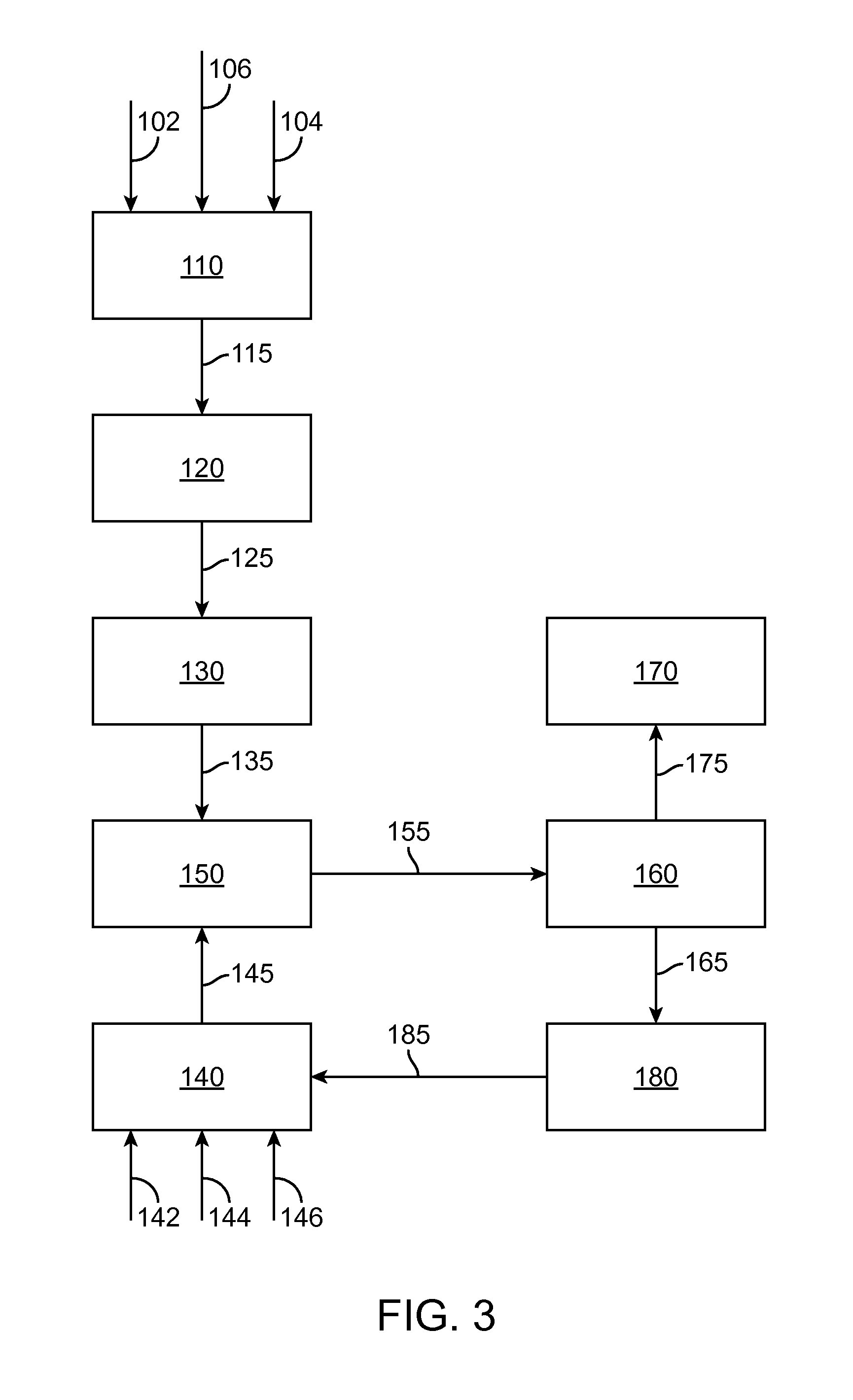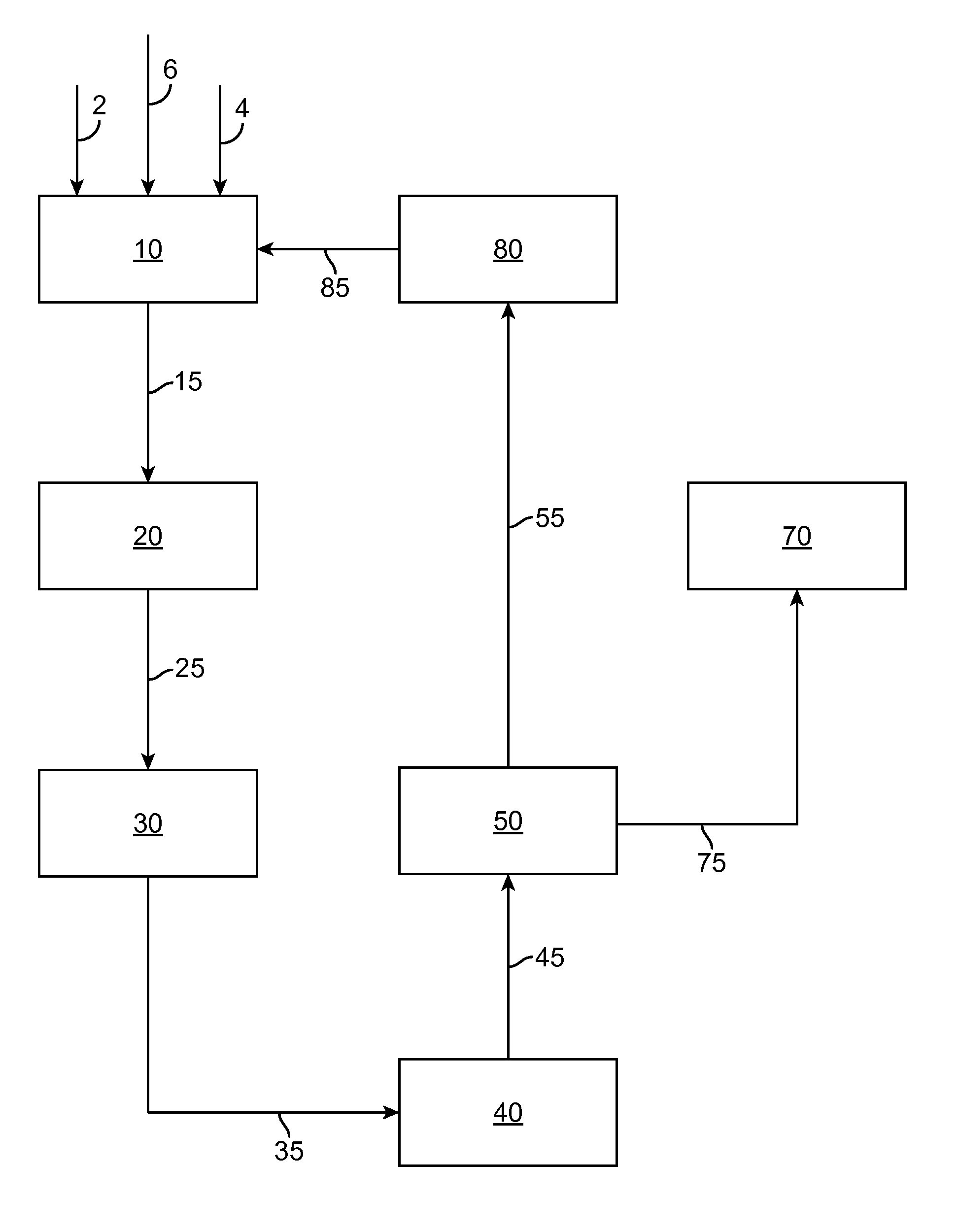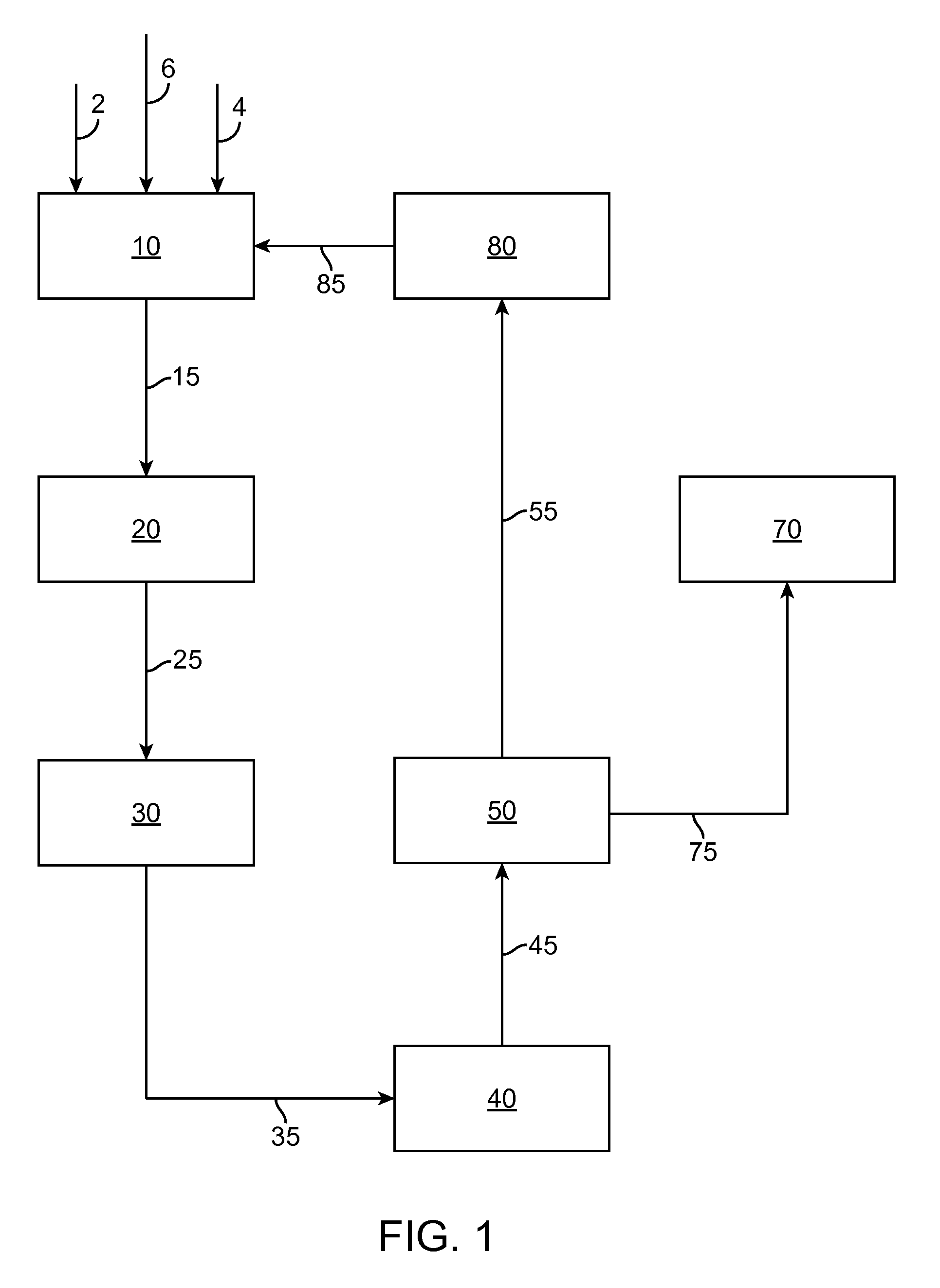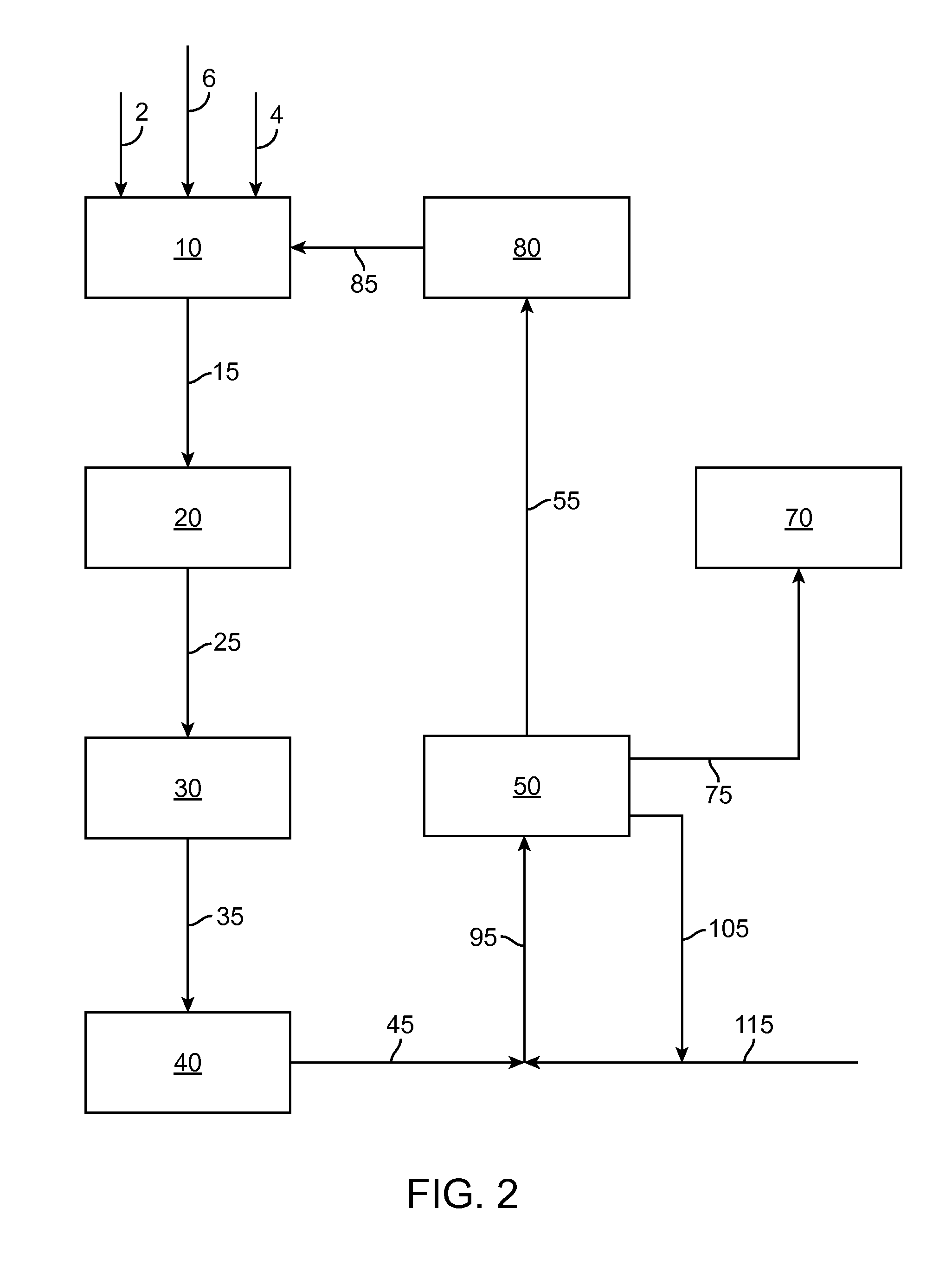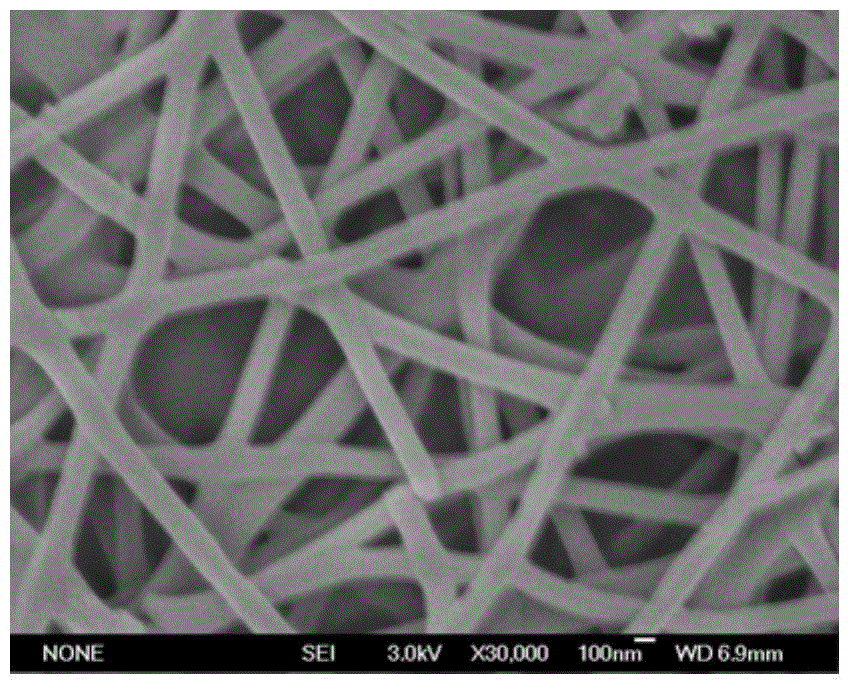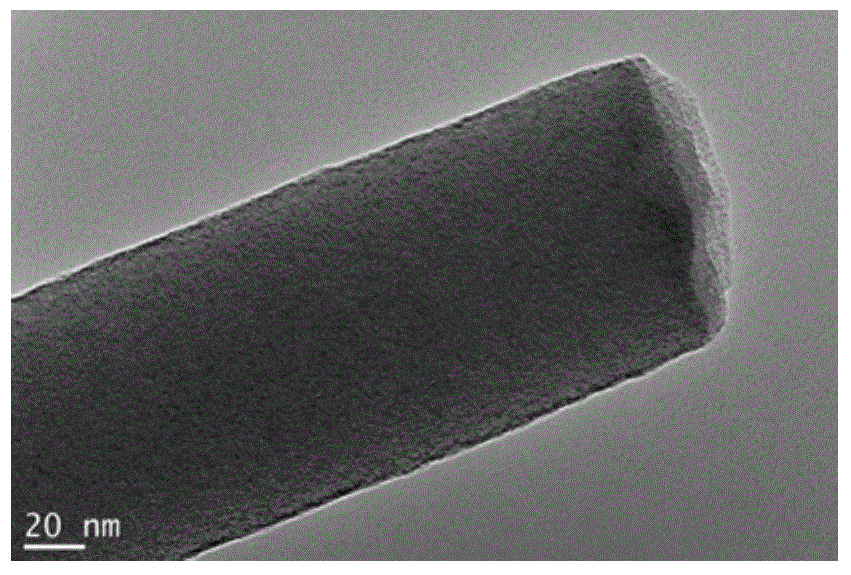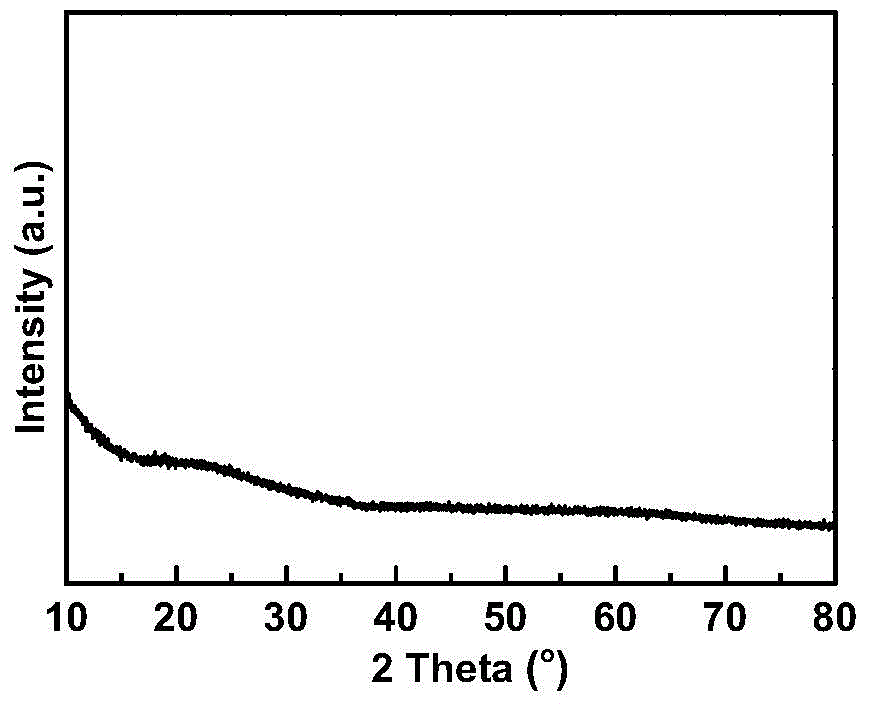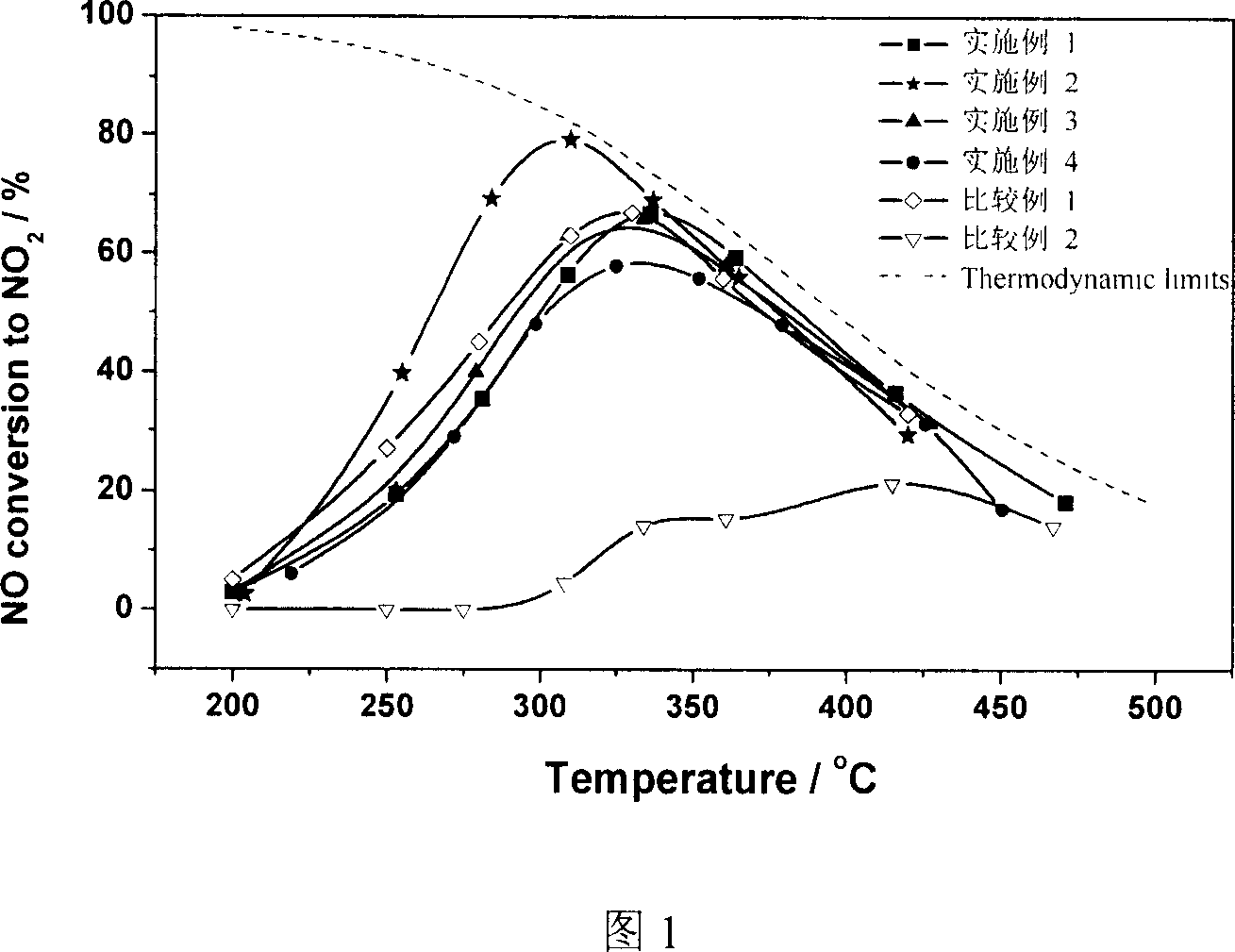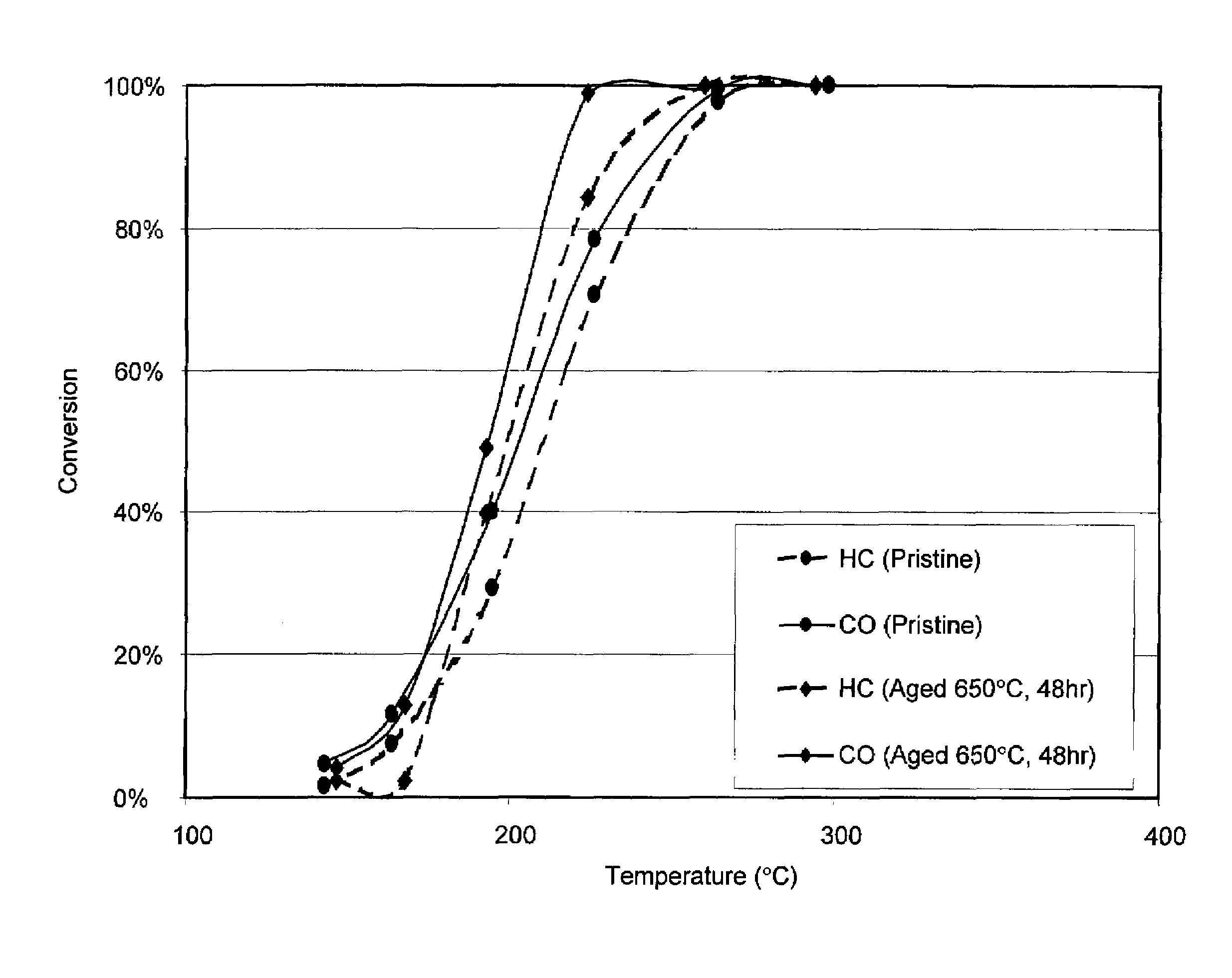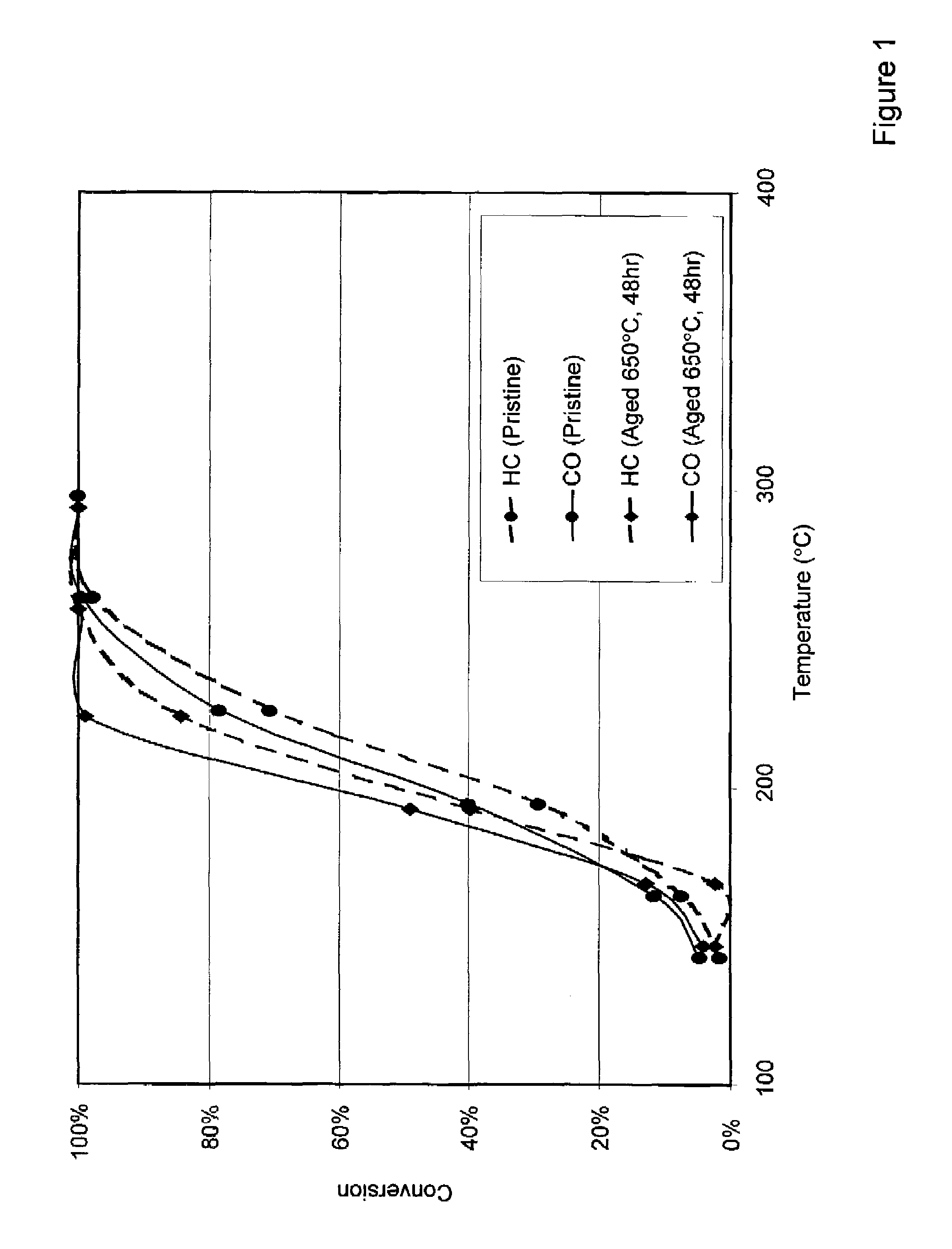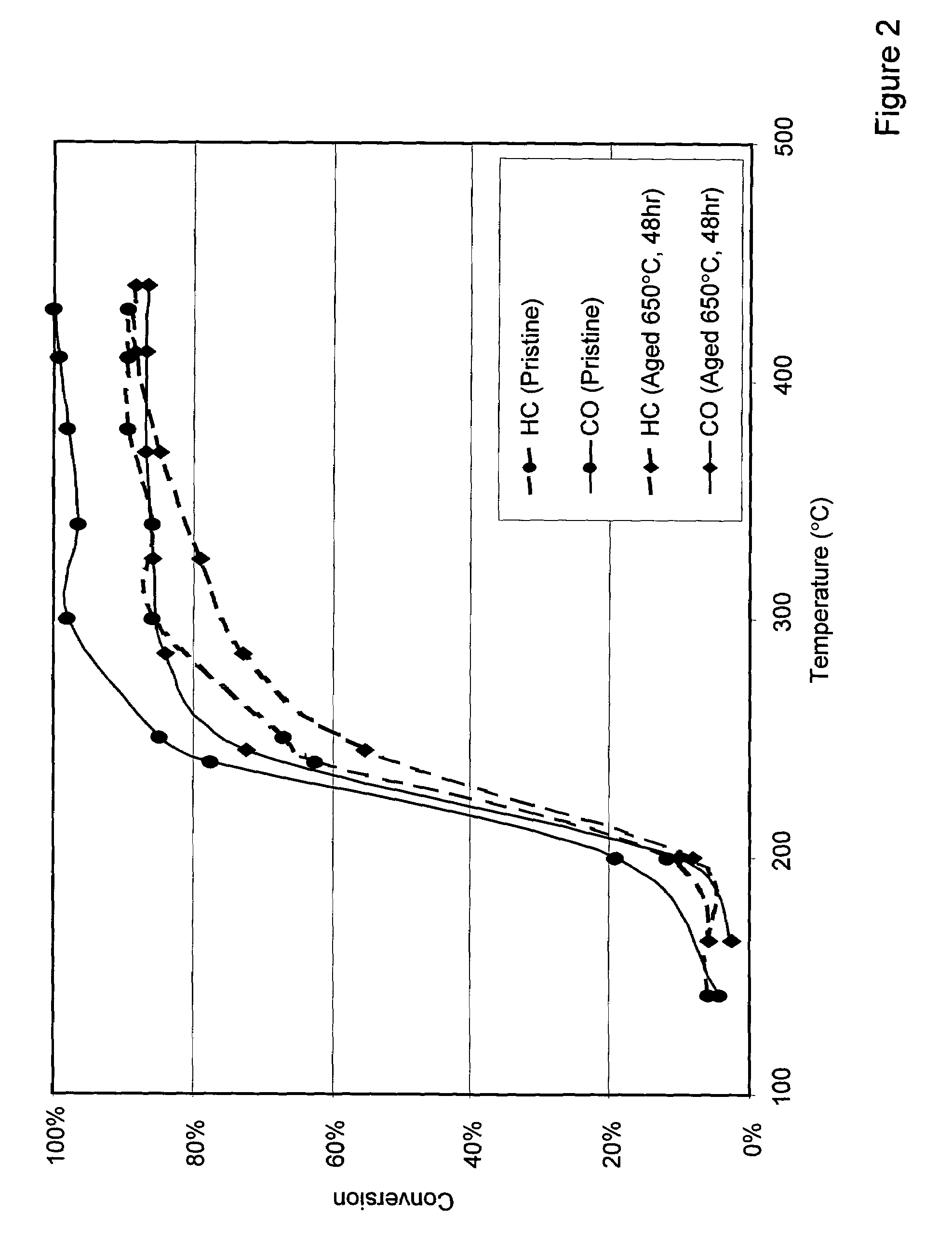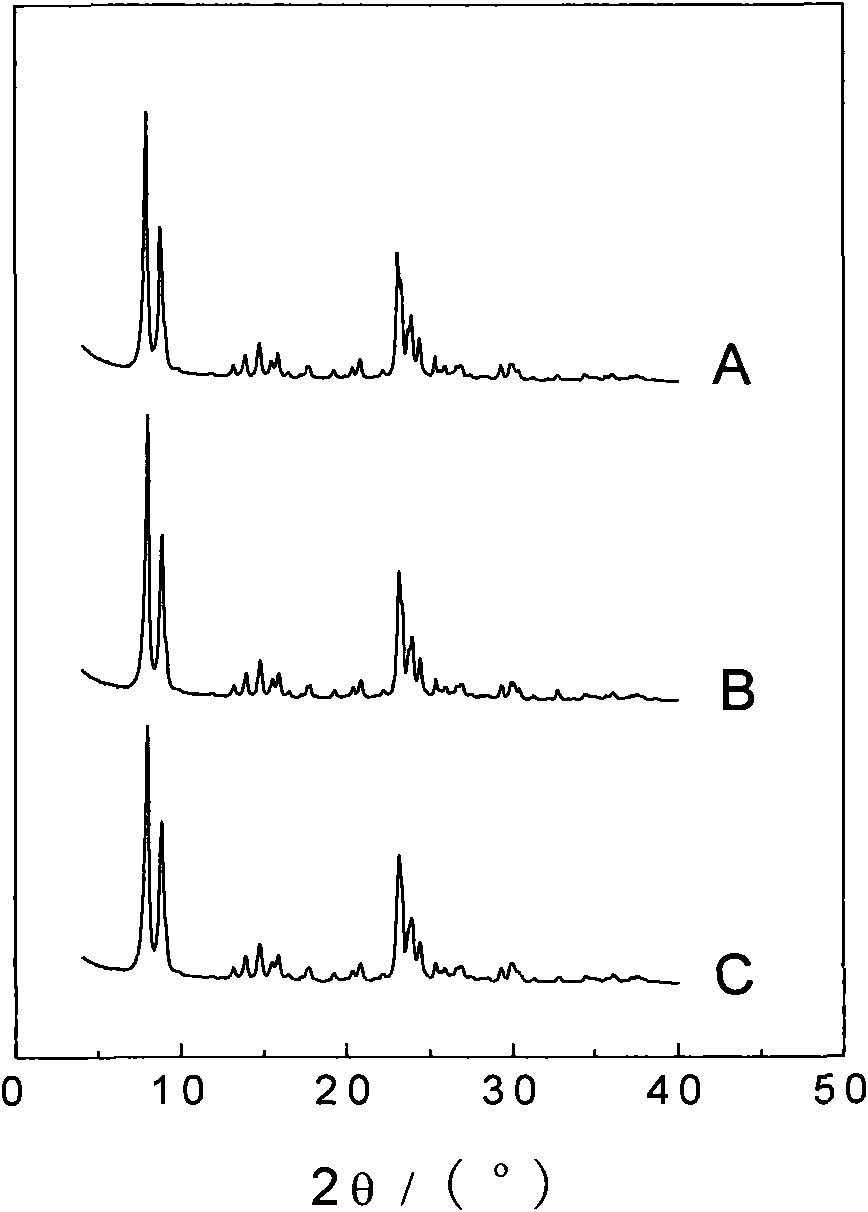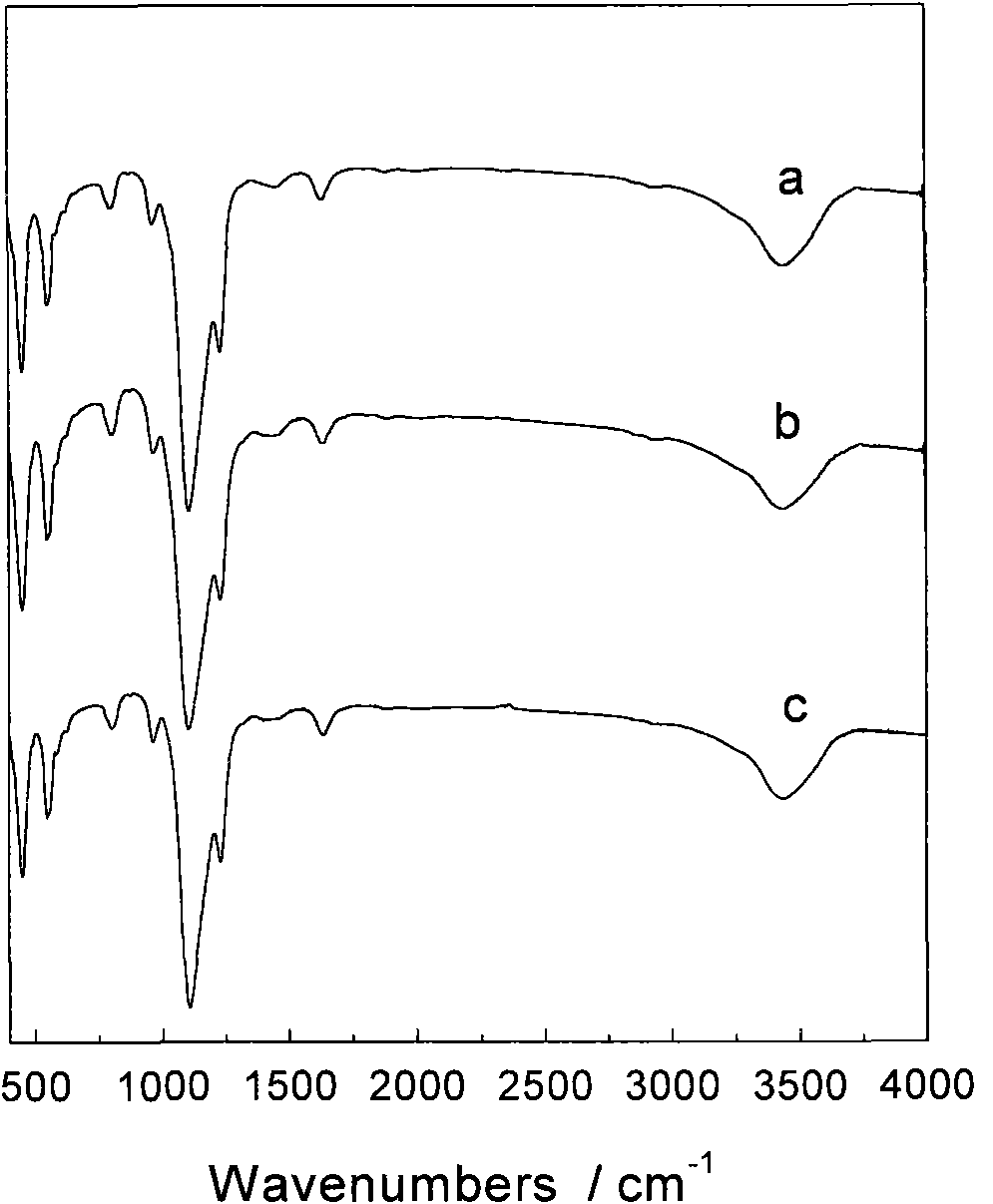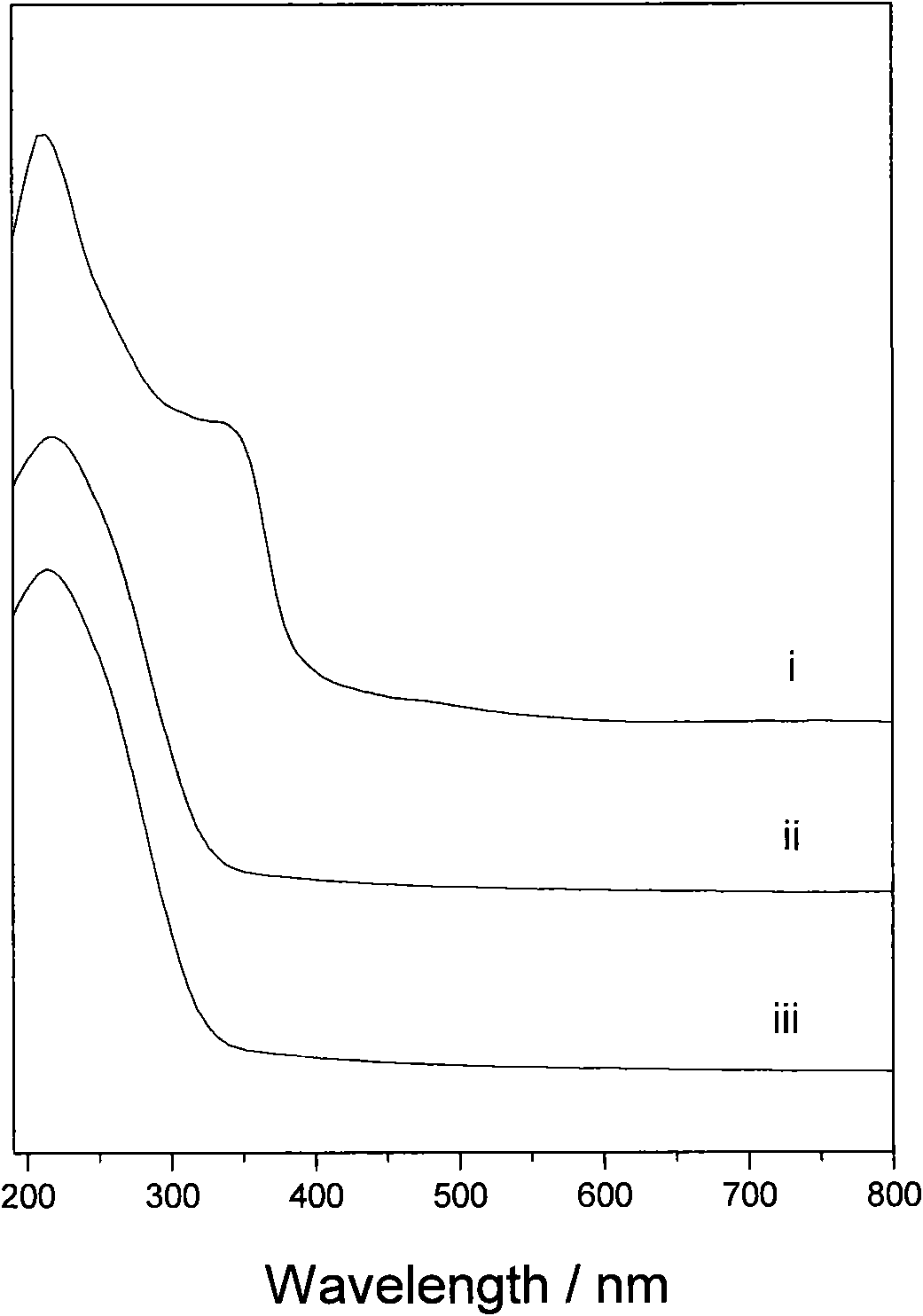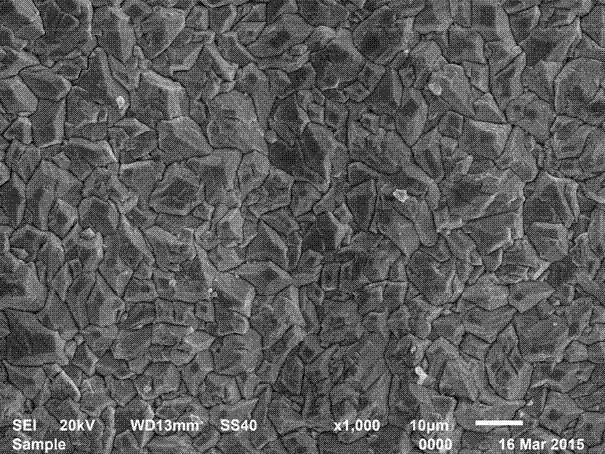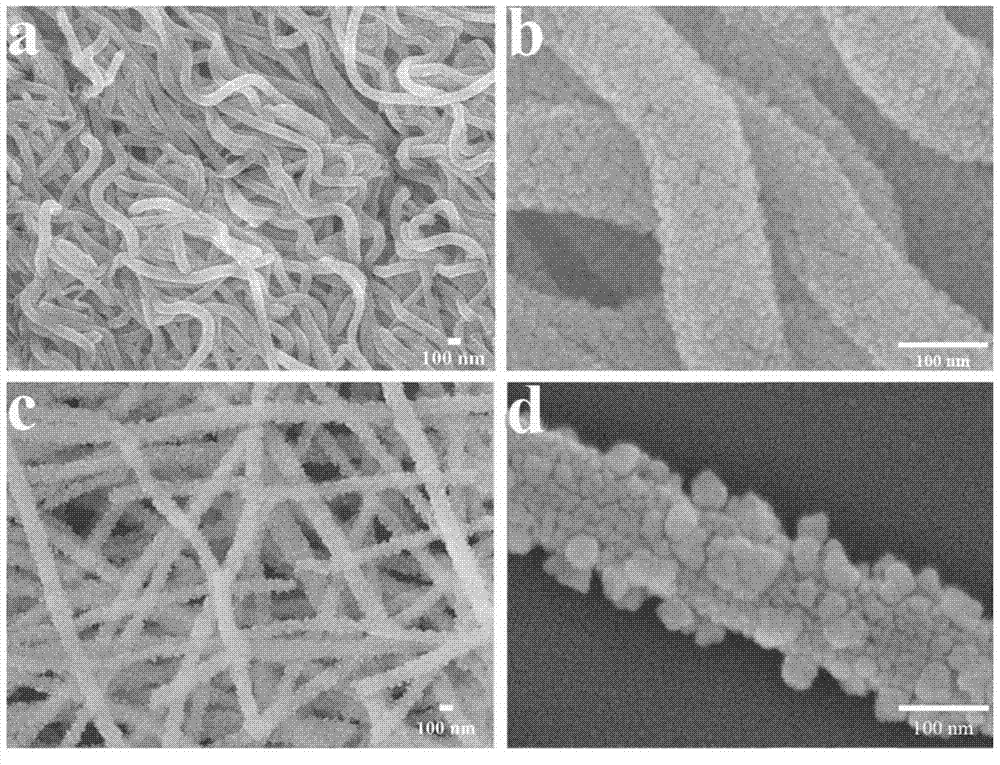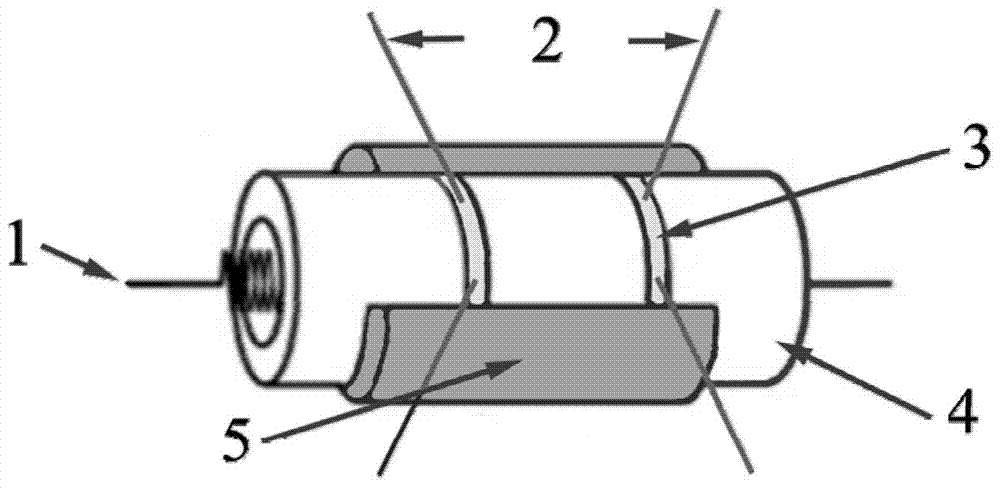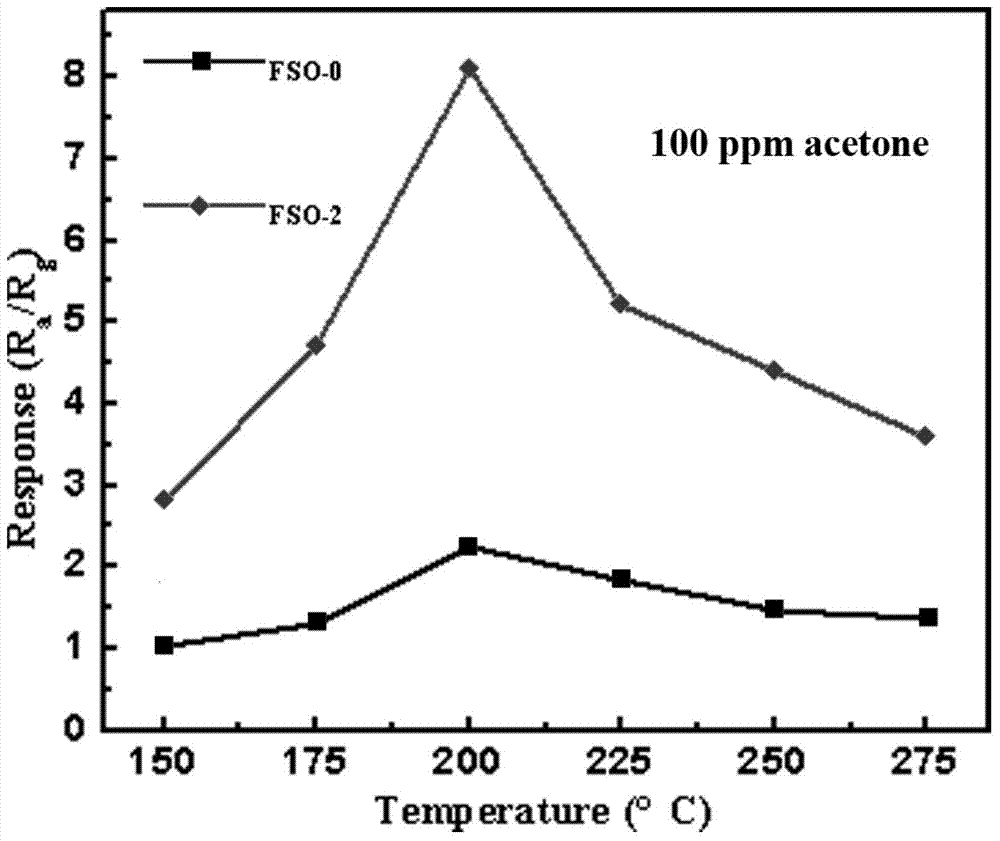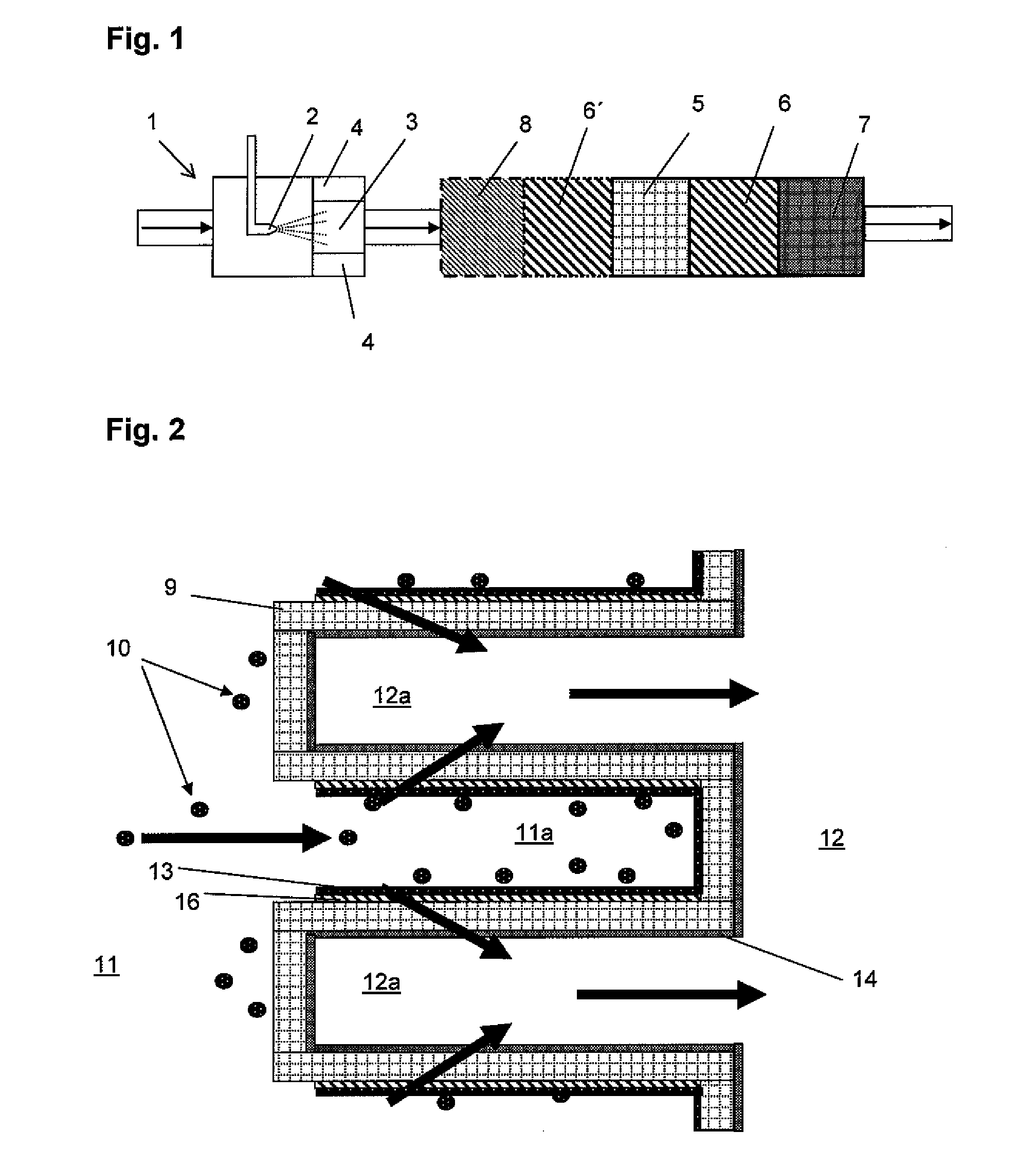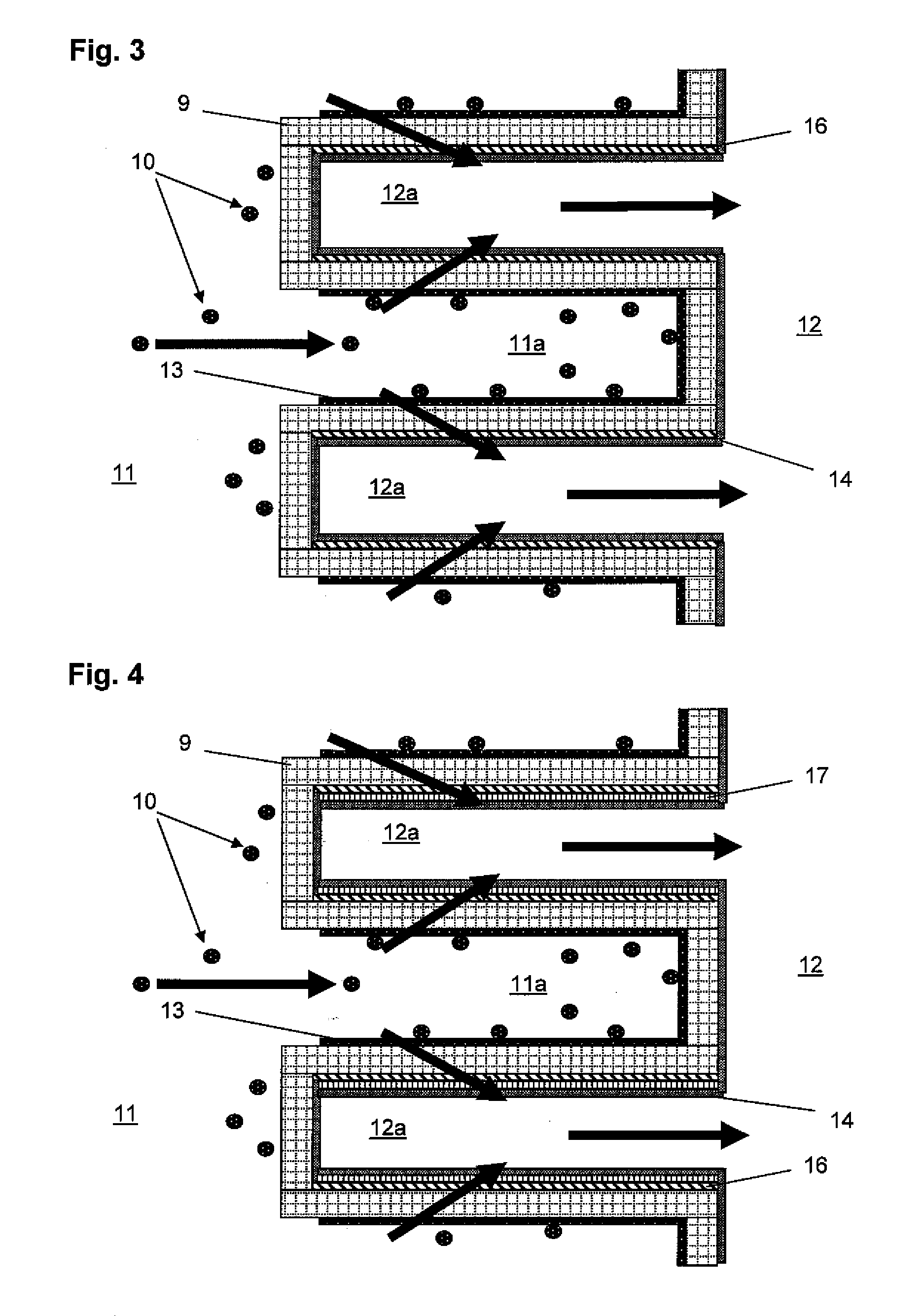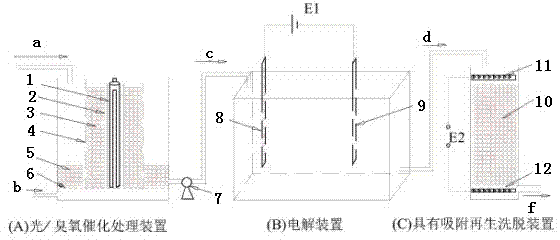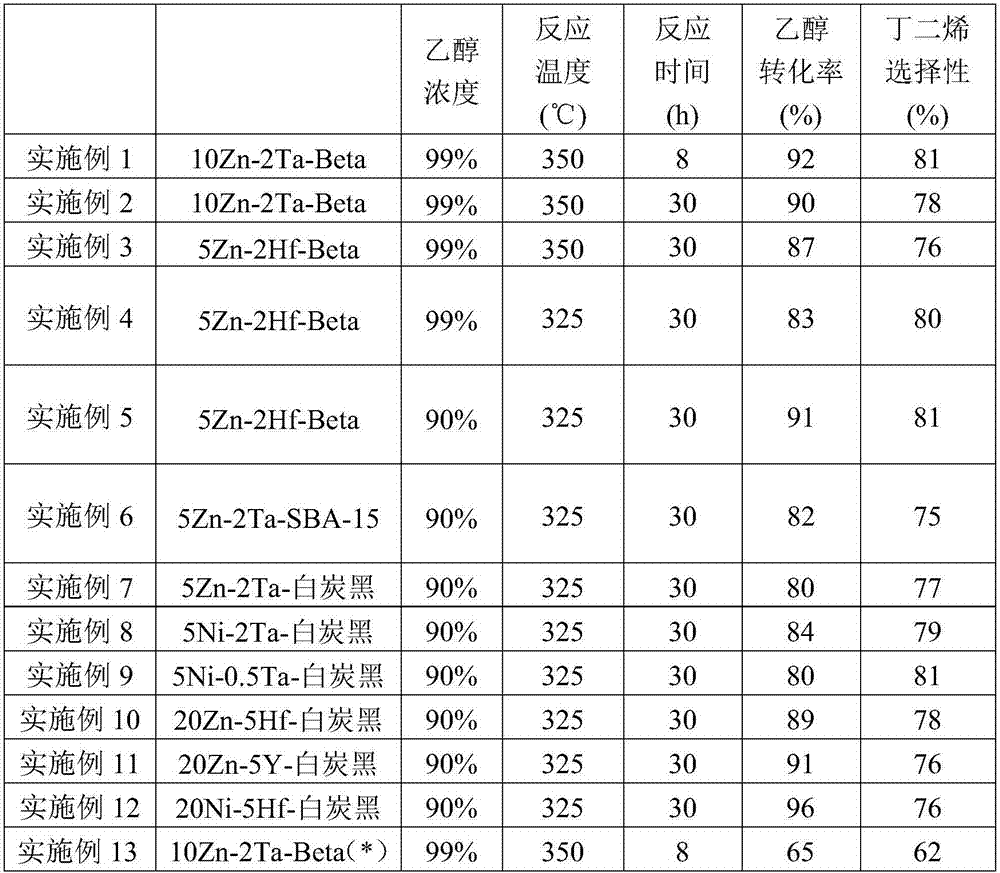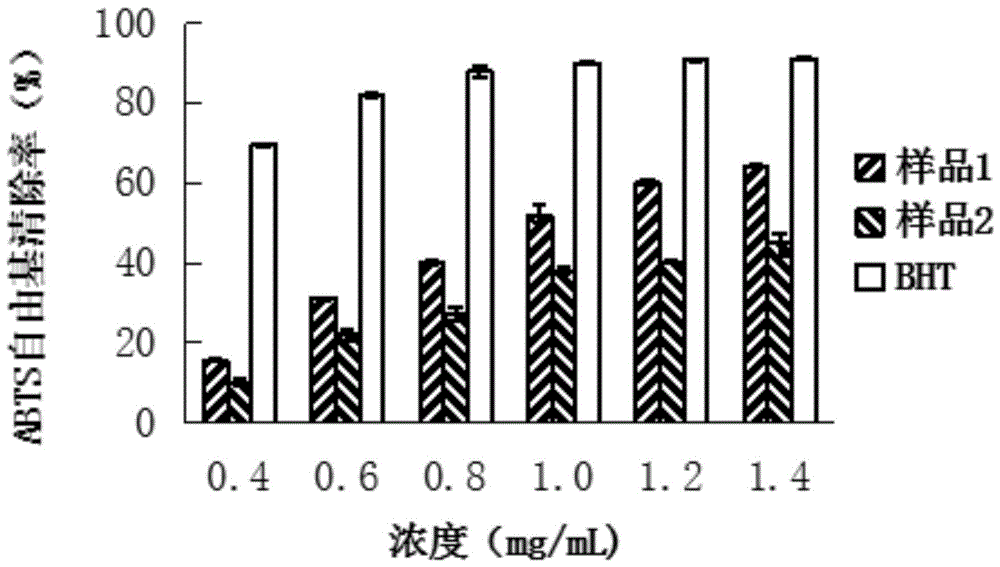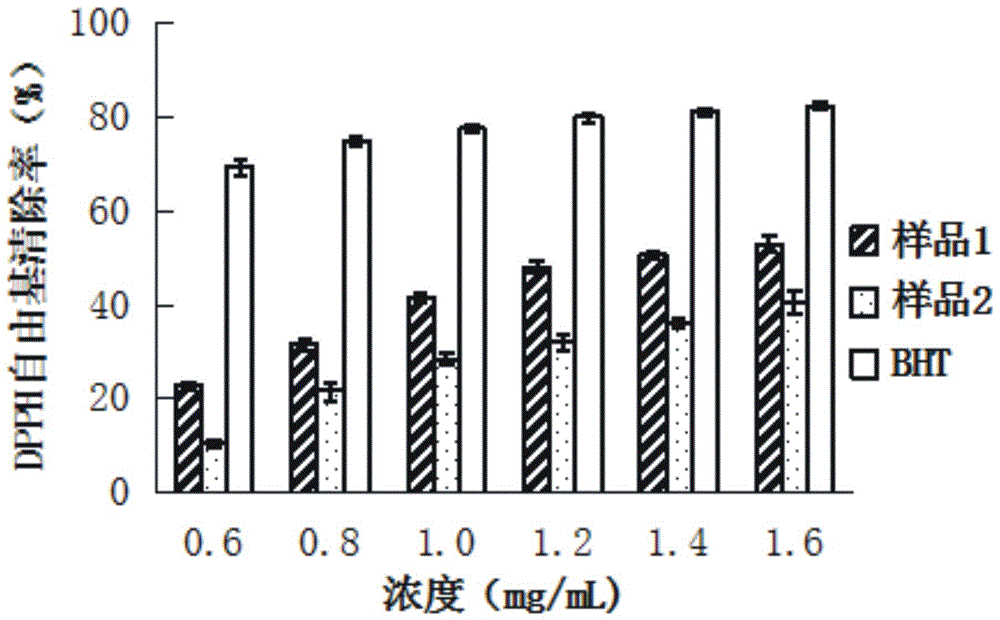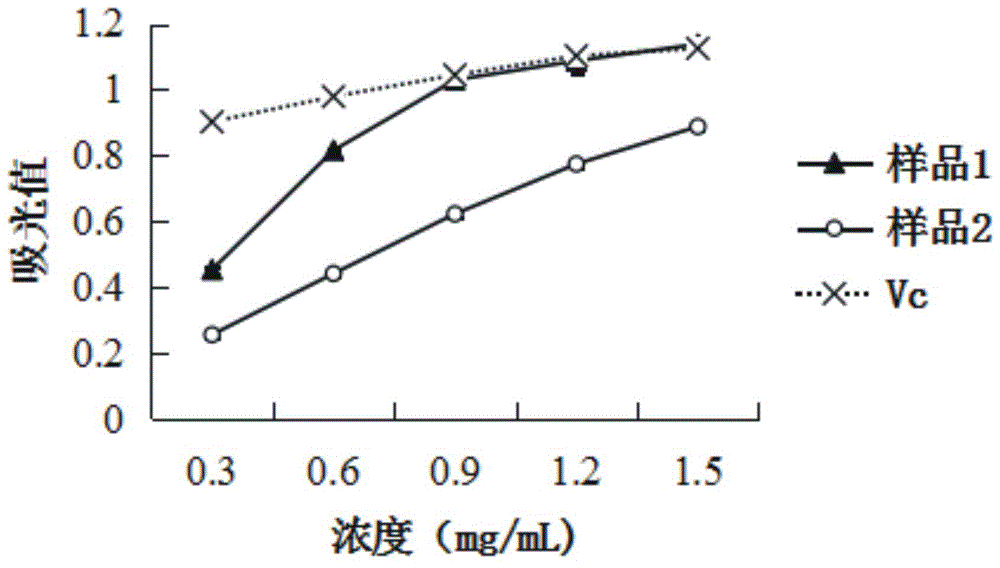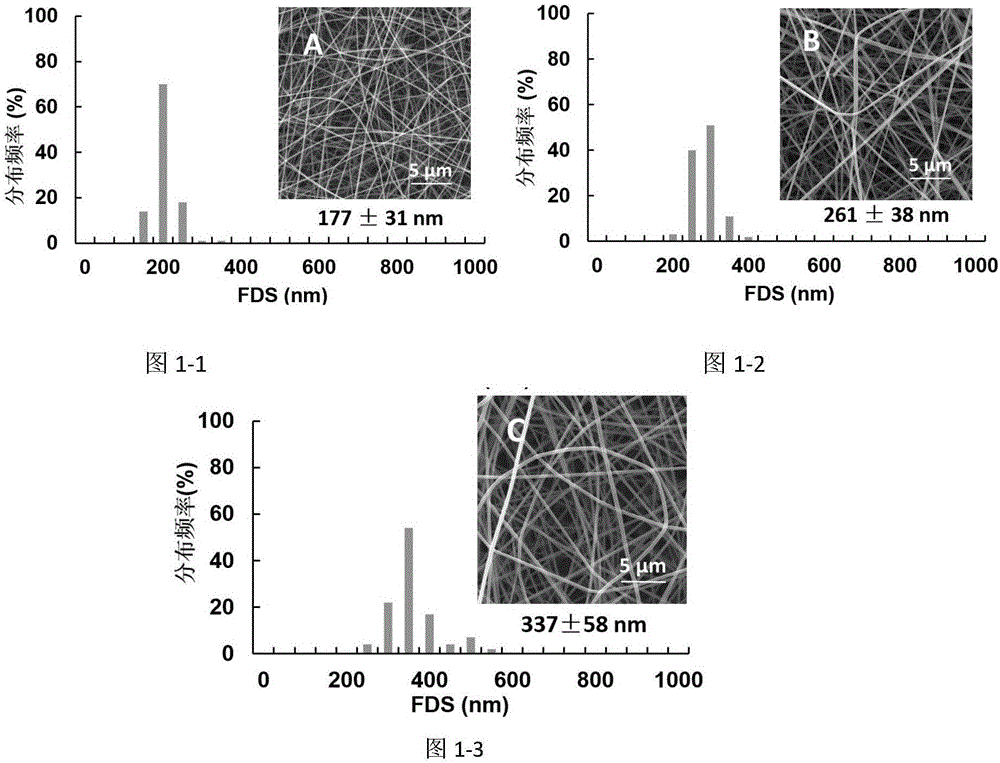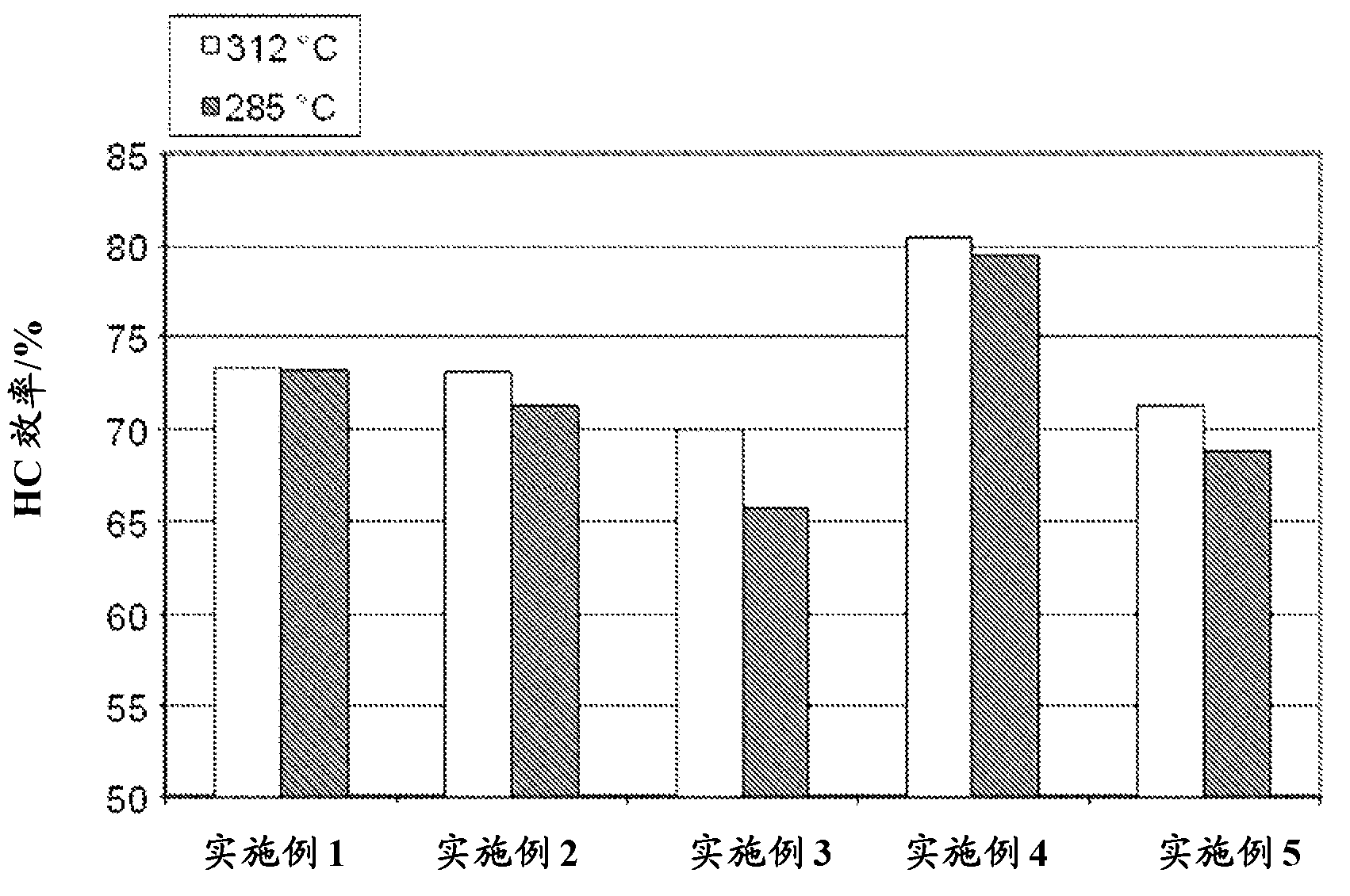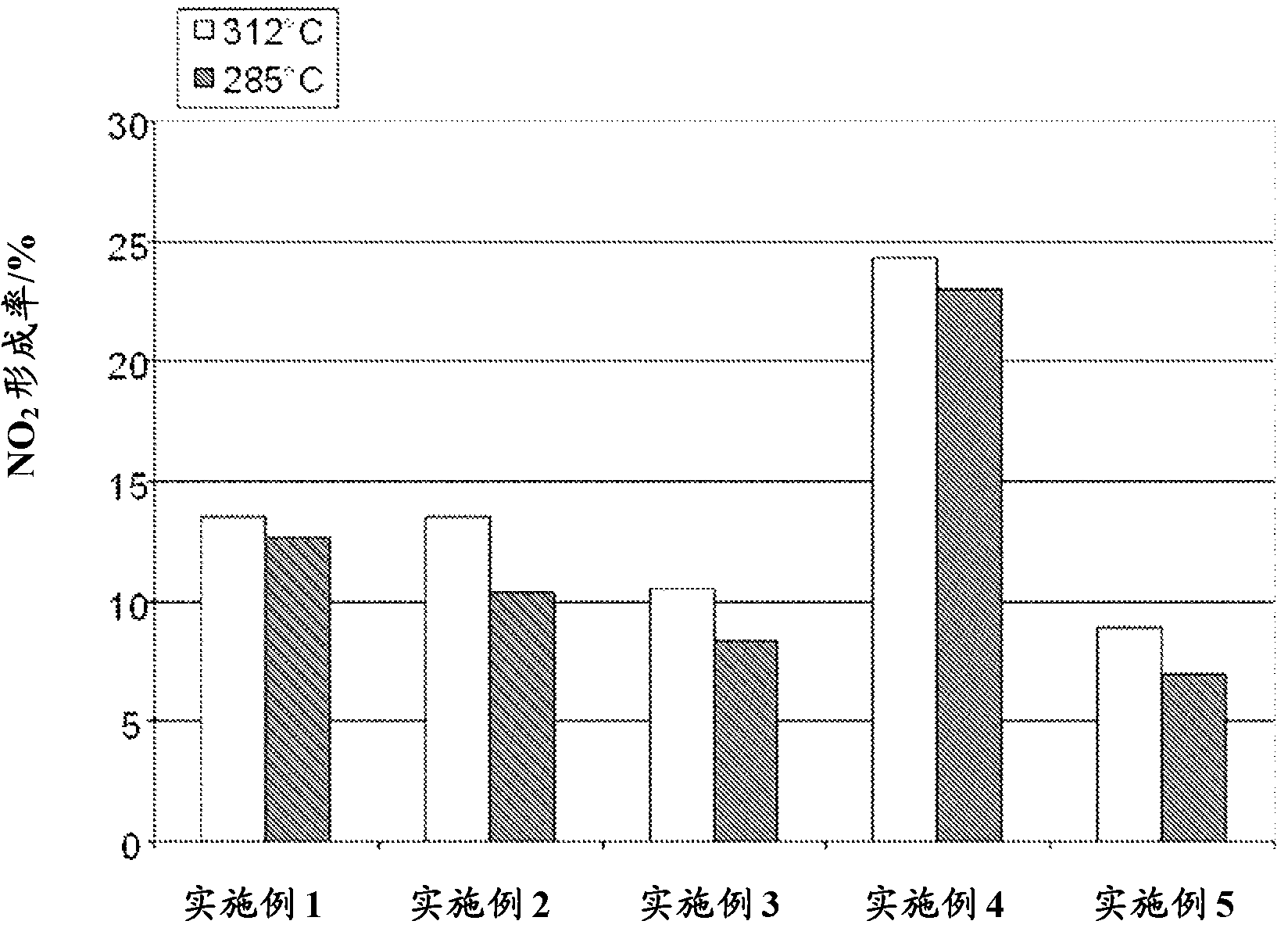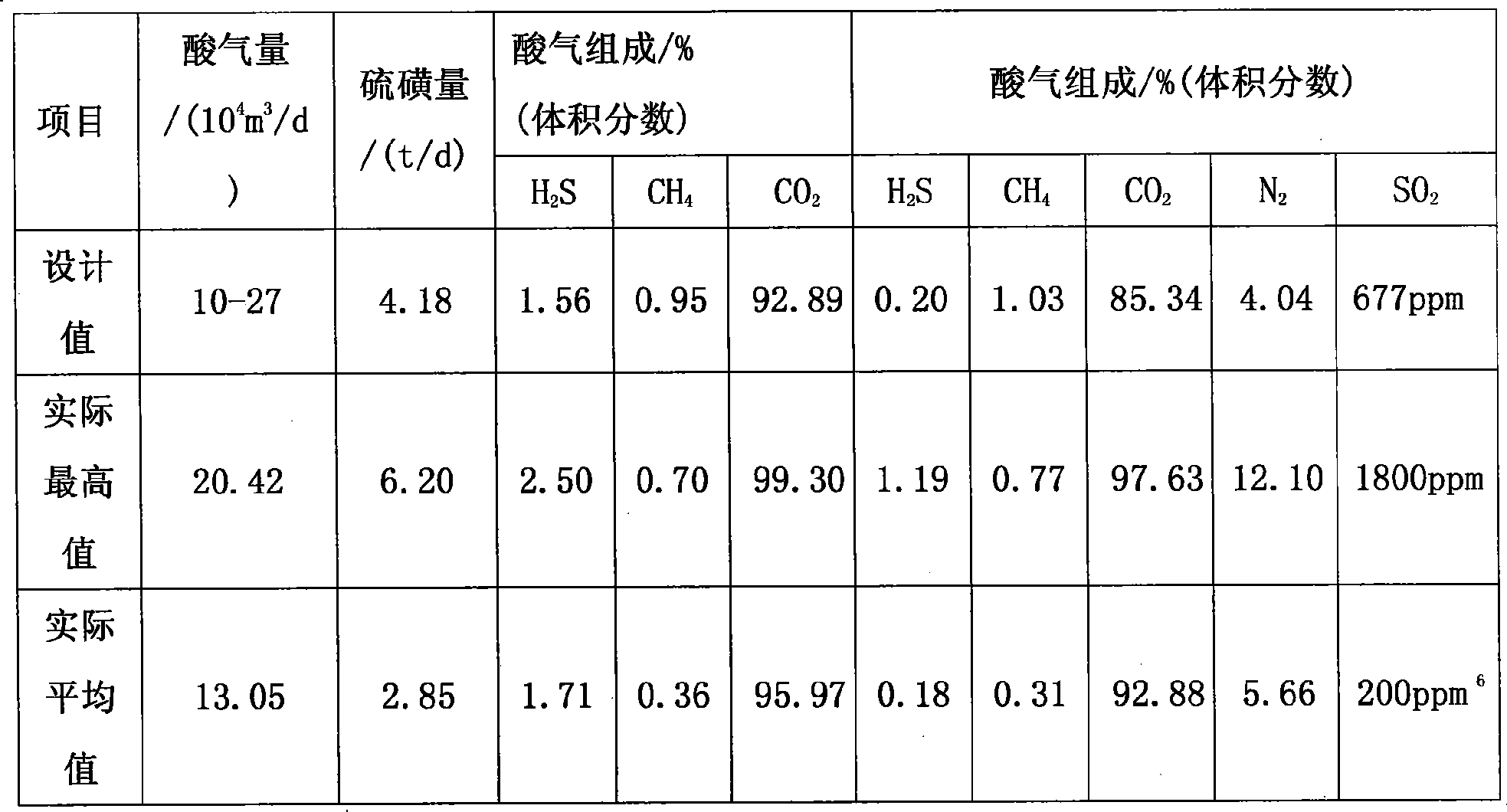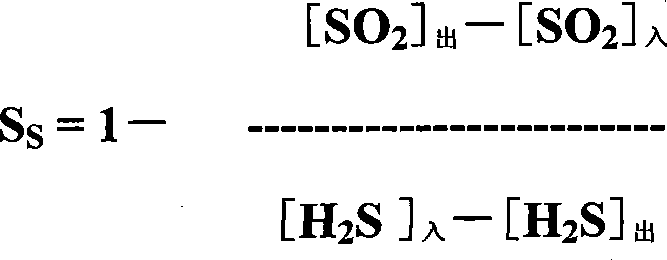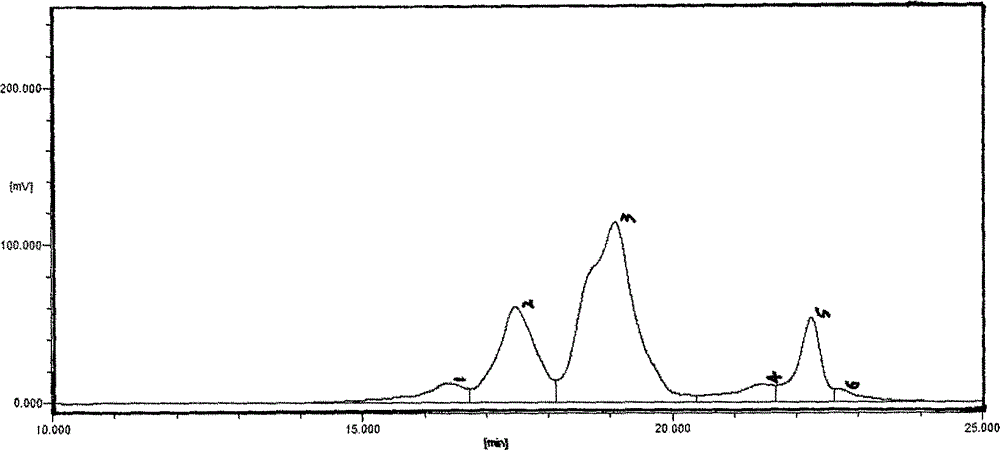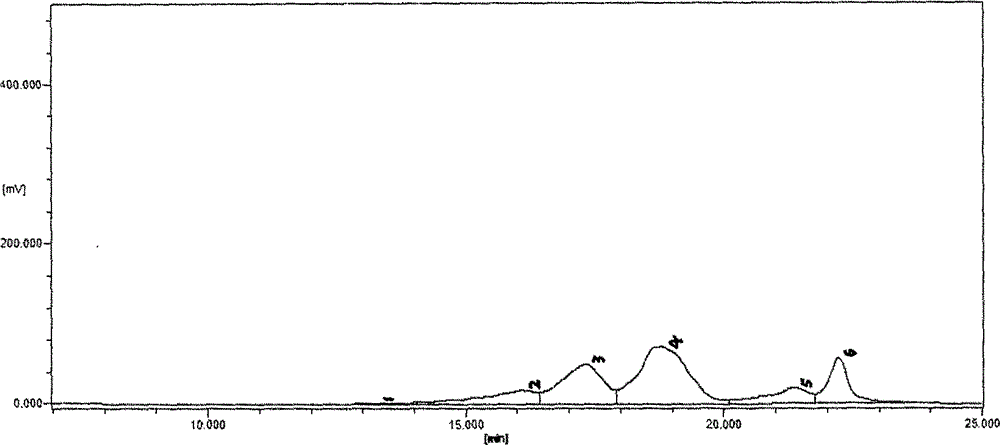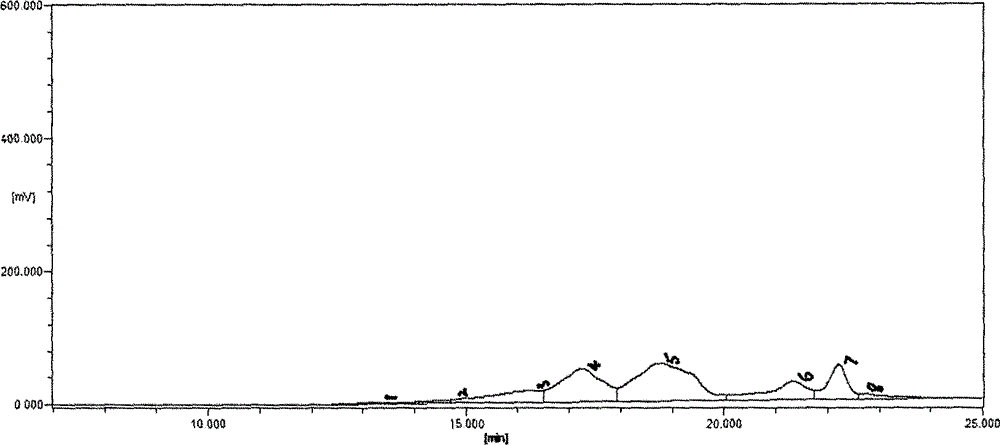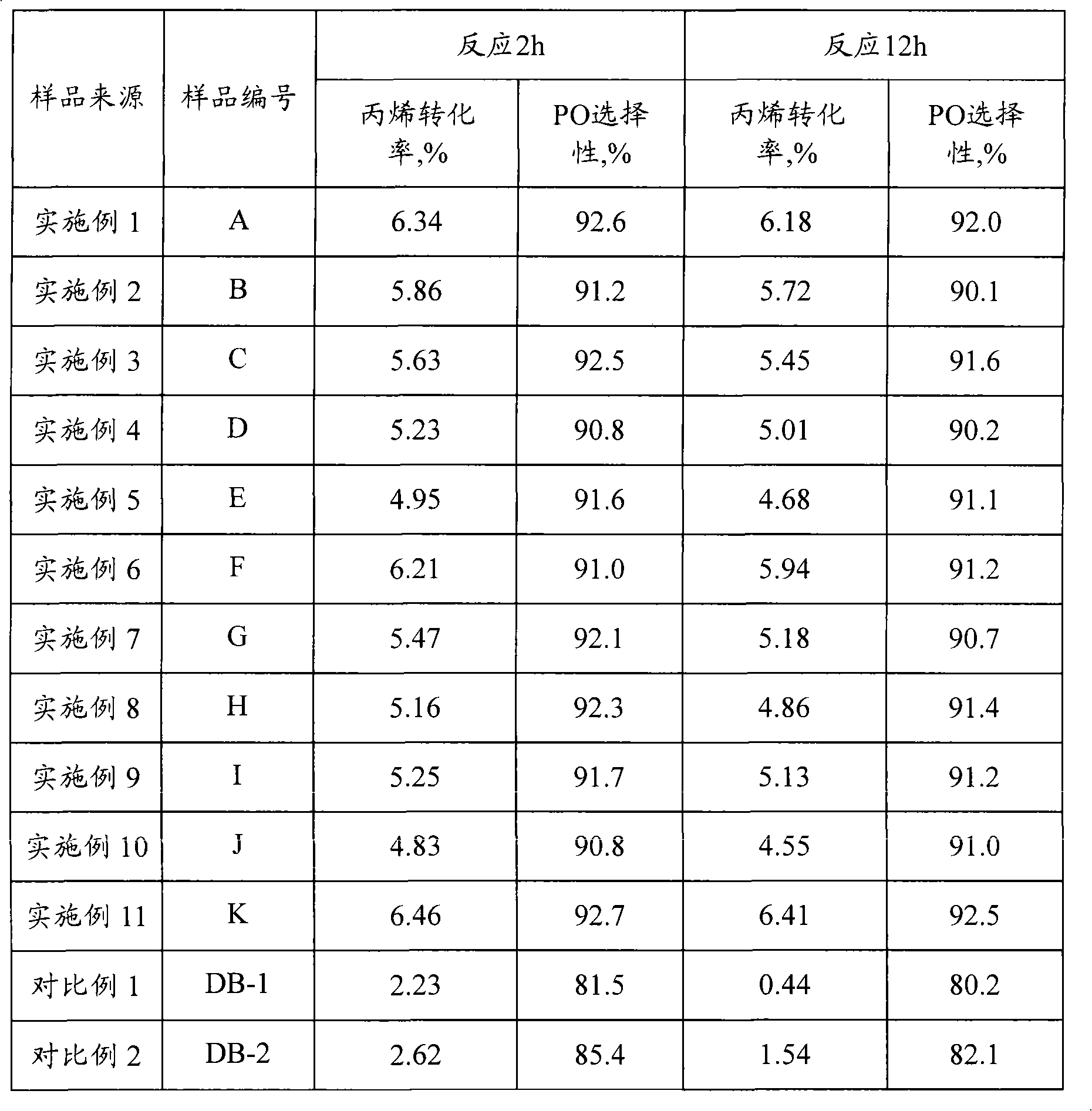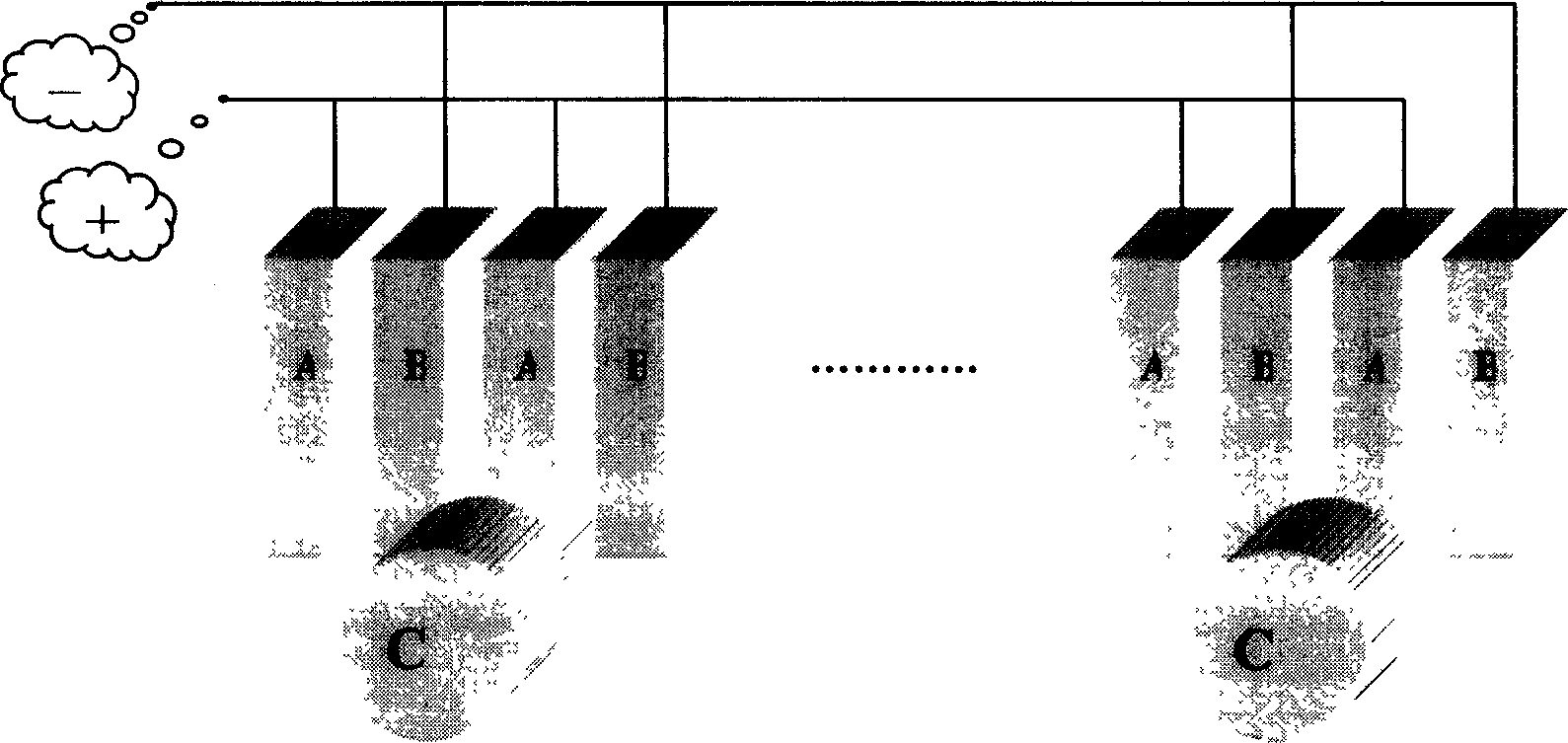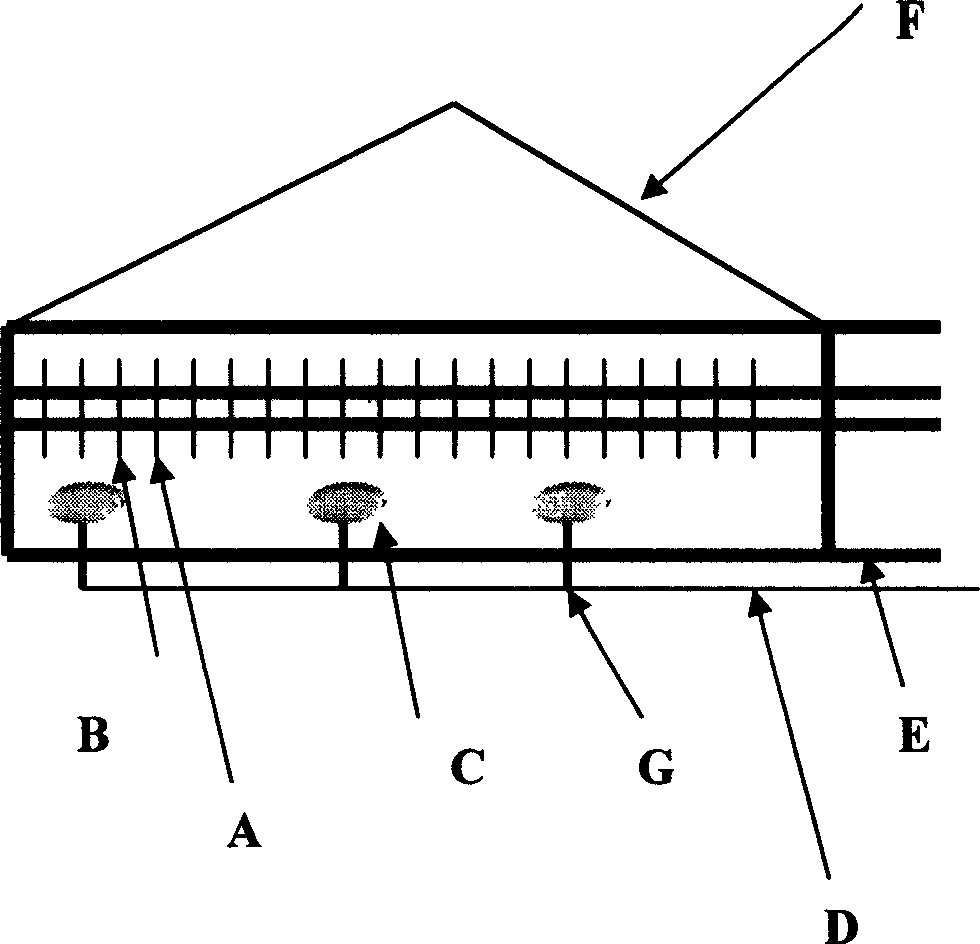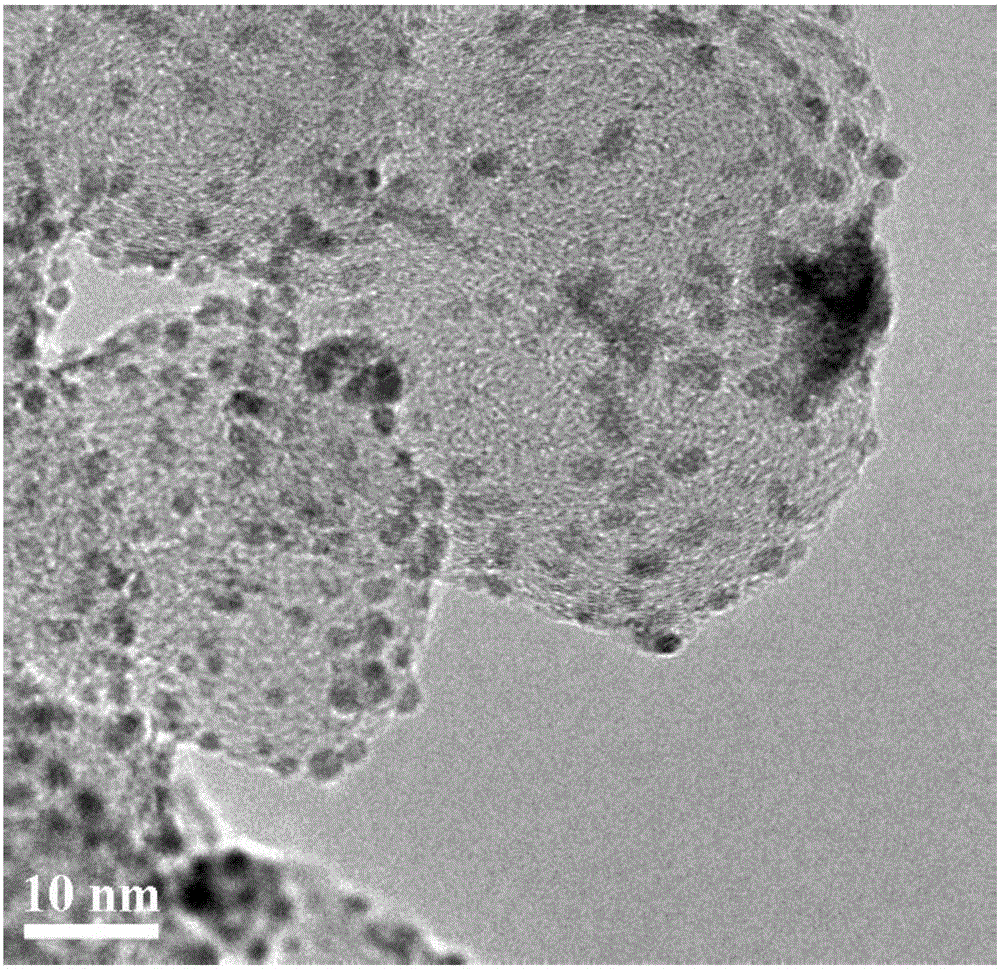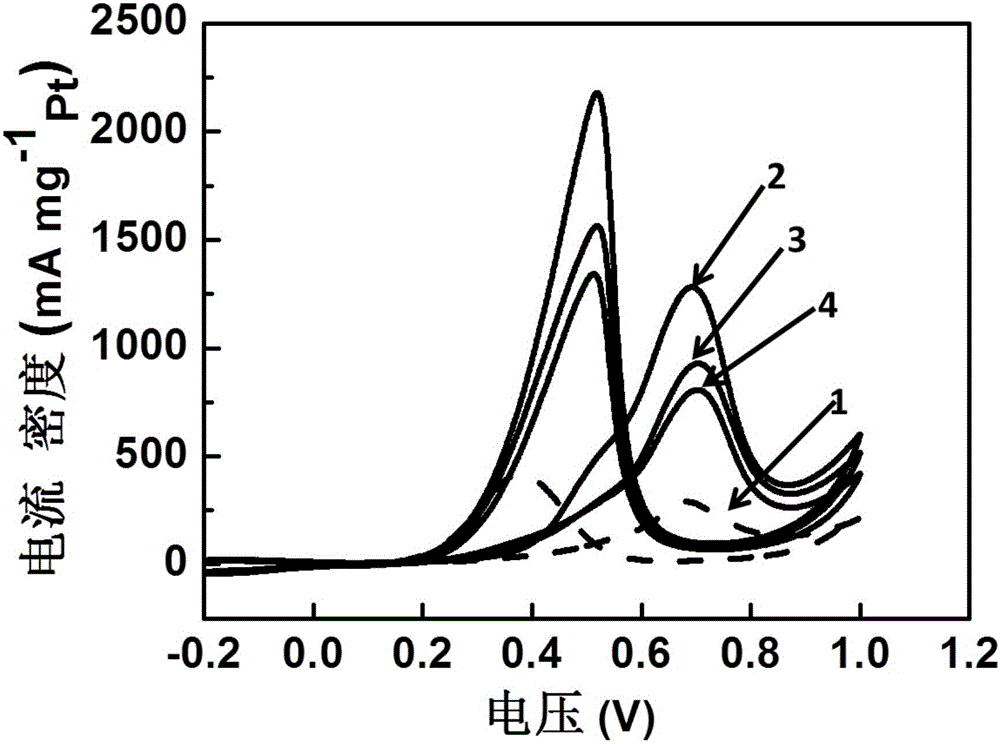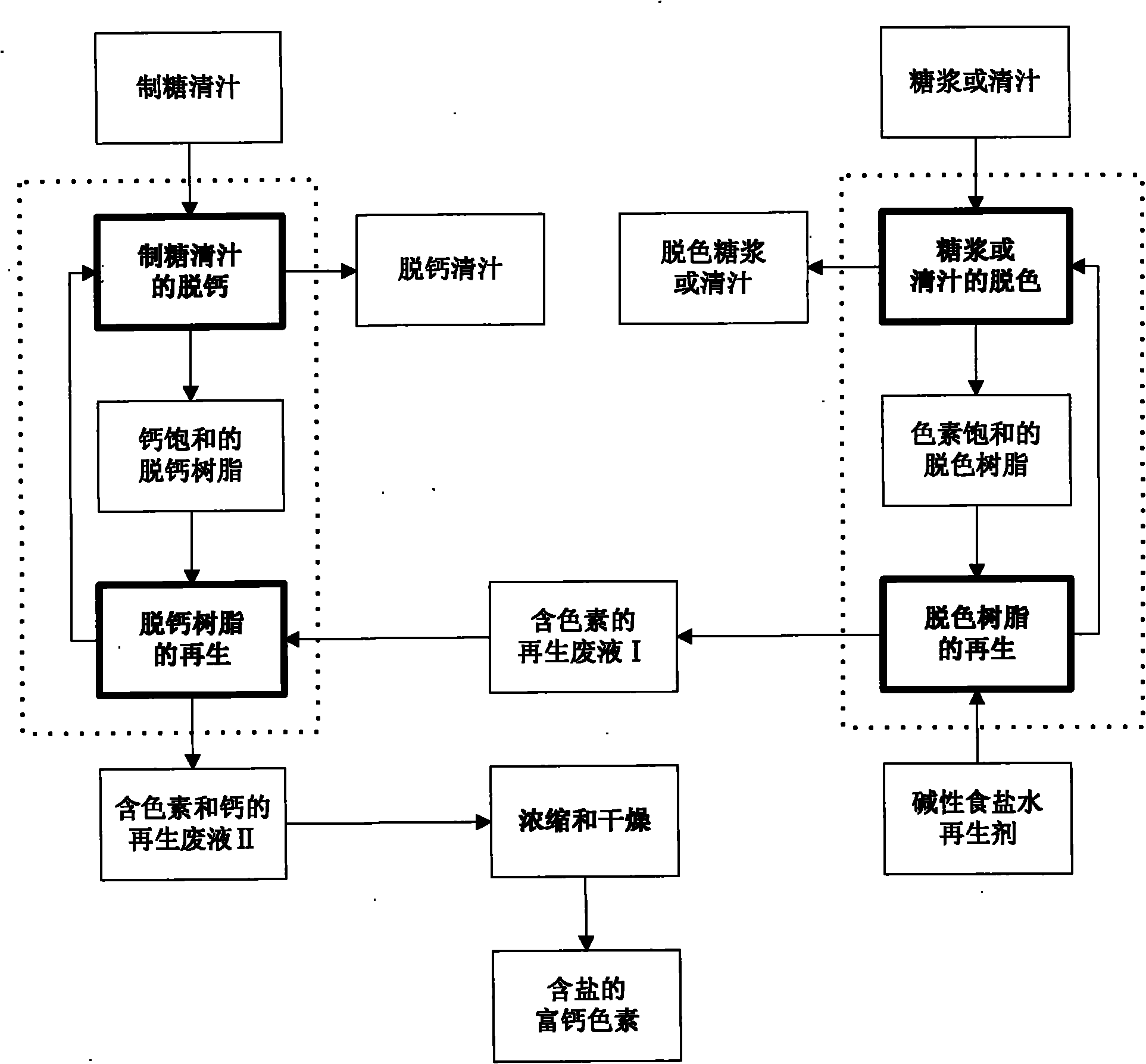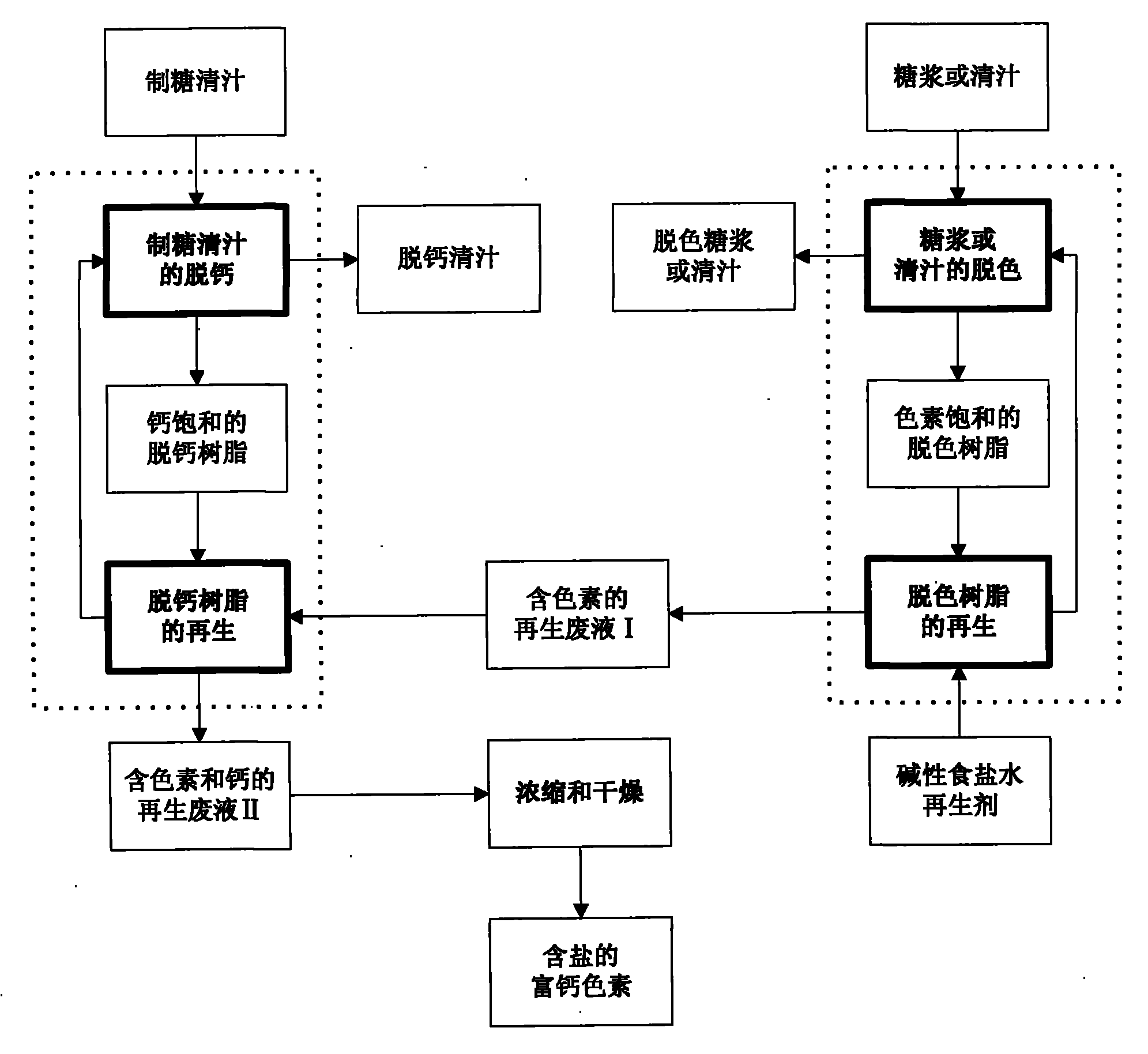Patents
Literature
Hiro is an intelligent assistant for R&D personnel, combined with Patent DNA, to facilitate innovative research.
668 results about "Oxidation Activity" patented technology
Efficacy Topic
Property
Owner
Technical Advancement
Application Domain
Technology Topic
Technology Field Word
Patent Country/Region
Patent Type
Patent Status
Application Year
Inventor
Engine exhaust catalysts containing palladium-gold
ActiveUS7534738B2Improve oxidation activityReduced activityLiquid surface applicatorsMolecular sieve catalystsPalladiumPt element
An emission control catalyst that exhibits improved CO and HC reduction performance includes a supported platinum-based catalyst, and a supported palladium-gold catalyst. The two catalysts are coated onto different layers, zones, or monoliths of the substrate for the emission control catalyst such that the platinum-based catalyst encounters the exhaust stream before the palladium-gold catalyst. Zeolite may be added to the emission control catalyst as a hydrocarbon absorbing component to boost the oxidation activity of the palladium-gold catalyst.
Owner:WGC HLDG LTD
Composite material of nitrogen-doped porous carbon-wrapped carbon nano tube as well as preparation method and application of material
ActiveCN103706388AEasy to prepareEconomical method of preparationMaterial nanotechnologyPhysical/chemical process catalystsCarbon layerPorous carbon
The invention relates to a composite material of a nitrogen-doped porous carbon-wrapped carbon nano tube as well as a preparation method and an application of the composite material. The preparation method comprises the following steps: dispersing the carbon nano tube in water, adding a carbon source to obtain a reaction system, subsequently performing hydrothermal reaction, performing thermal treatment on the carbon nano tube wrapped with a carbon layer on the surface, and a nitrogen source at the high temperature so as to obtain the composite material of the nitrogen-doped porous carbon-wrapped carbon nano tube. According to the preparation method, the carbon source is polymerized under a hydrothermal reaction condition so as to obtain the carbon layer, the outer surface of the carbon nano tube is wrapped with the carbon layer, subsequently the carbon layer is carbonized and decomposed to generate a porous structure under high temperature treatment, and at the same time, the gasified nitrogen source is diffused to the carbon layer through ducts to be subjected to in-situ doping. The composite material provided by the invention can be used as a cathode oxidation reduction catalyst of a fuel battery, is excellent in catalysis, and is high in oxidation activity when being compared with other nitrogen-doped materials reported in documents. The preparation method provided by the invention is simple and economic in process, convenient to operate and easy to achieve the large-scale production.
Owner:INST OF CHEM CHINESE ACAD OF SCI
Method for preparing formaldehyde room temperature oxidation catalyst
InactiveCN102895969AEasy to operateReduce manufacturing costMolecular sieve catalystsMetal/metal-oxides/metal-hydroxide catalystsPtru catalystInorganic oxide
The invention relates to a method for preparing formaldehyde room temperature oxidation catalyst. The method comprises the following steps: making porous inorganic oxide as a carrier; making sodium borohydride as reducing agent; making soluble hydroxide as additive; and drying the carrier including noble metal processed by carrier impregnation noble metal precursor-room temperature reduction-deposition so as to prepare catalyst. According to the invention, sodium borohydride reducing agent is added for one time at the room temperature, thus, the aperture of generated noble metal nano particle is smaller than that of particle prepared in a high-temperature burning / hydrogen reducing method; crystal particle is within 0.1-5nm; and dispersibility is good; the loading quantity of the noble metal is within 0.05-10wt%, preferably within 0.5-2%; corresponding aperture is within 0.5-3nm; prepared loading-type noble metal catalyst has very high oxidative activity to formaldehyde in air on a room temperature condition without illumination or heat; activity is not changed basically in repeated using procedures; and the method disclosed by the invention is characterized by simple compound line, easily-acquired raw material and is suitable for industrial production.
Owner:WUHAN UNIV OF TECH
Titanium dioxide fine particles and method for producing the same, and method for producing visible light activatable photocatalyst
InactiveUS7175911B2Improve photocatalytic activityImprove stabilityMaterial nanotechnologySynthetic resin layered productsMicroparticlePhotochemistry
The invention provides titanium dioxide fine particles, wherein nitrogen and at least one element selected from carbon, hydrogen, sulfur doped in titanium dioxide by heat-treating fine particles of a material of titanium dioxide at 500° C. or more and 600° C. or less in a reducing gas atmosphere containing nitrogen. The titanium fine particles exhibit a high photocatalytic activity than in the conventional art by irradiating a visible light such that they exhibit an isopropanol oxidation activity induced by visible light irradiation with a wavelength of 400 nm or more and 600 nm or less with excellent stability and durability of the photocatalytic activity.
Owner:COVALENT MATERIALS CORP
In-Situ Kerogen Conversion and Oxidant Regeneration
InactiveUS20130161002A1Process economyEfficient productionFluid removalDrilling compositionOrganic acidKerogen
Disclosed herein are methods for extracting a kerogen-based product from subsurface shale formations. The methods utilize in-situ reactions of kerogen involving liquid phase chemistry at formation temperatures and pressures. These methods rely on chemically modifying the shale-bound kerogen to render it mobile, using chemical oxidants. In the methods disclosed herein an oxidant is provided to the subsurface shale formation comprising kerogen in an inorganic matrix, the oxidant converting the kerogen to form organic acids, and forming a mobile kerogen-based product. The spent oxidant is regenerated in-situ to restore at least some of the original oxidation activity. At least a portion of the mobile kerogen-based product is recovered. The kerogen-derived product can be upgraded to provide commercial products.
Owner:CHEVROU USA INC
In-situ kerogen conversion and oxidant regeneration
InactiveUS8851177B2More environmentally benignProcess economyFluid removalDrilling compositionKerogenOrganic acid
The invention relates to methods for extracting a kerogen-based product from subsurface shale formations. The methods utilize in-situ reactions of kerogen involving liquid phase chemistry at formation temperatures and pressures. These methods rely on chemically modifying the shale-bound kerogen to render it mobile, using chemical oxidants. In one embodiment, an oxidant is provided to the subsurface shale formation comprising kerogen in an inorganic matrix, the oxidant converting the kerogen to form organic acids, and forming a mobile kerogen-based product. The spent oxidant is regenerated in-situ to restore at least some of the original oxidation activity. At least a portion of the mobile kerogen-based product is recovered. The kerogen-derived product can be upgraded to provide commercial products.
Owner:CHEVROU USA INC
Compound metal oxide water oxidation catalyst and electrostatic spinning preparation method thereof
InactiveCN104404652AElectrospinning technology is simple and easyElectrospinning technology is cheap and efficientInorganic material artificial filamentsFilament/thread formingCeriumCobalt
The invention discloses a compound metal oxide water oxidation catalyst and a preparation method thereof adopting an electrostatic spinning technology, and belongs to the technical field of electrocatalyst synthesis. The preparation method of the compound metal oxide water oxidation catalyst comprises the steps of preparing a nanometer fiber precursor by using an electrostatic spinning technology, and performing calcination processing on the preparing nanometer fiber precursor, so as to obtain an amorphous compound metal oxide nano-fiber, wherein the molar ratio of indispensable metallic elements to auxiliary metallic elements is 2:(1-10), and the indispensable metallic elements and the auxiliary metallic elements are not the same; the indispensable metallic elements are iron, cobalt, nickel or manganese, and the auxiliary metallic elements are iron, cobalt, nickel, manganese, copper, zinc, calcium, magnesium, barium, strontium, lanthanum, chromium, molybdenum, gallium or cerium; the catalyst has excellent electrocatalysis water oxidation activity in a strong alkaline solution with the pH value of 14, is equivalent to a noble metal IrOx / C in catalytic property, and has stable catalytic activity. The electrostatic spinning technology adopted by the invention is simple, convenient, feasible, low in price, efficient, excellent in controllability and repeatability, and suitable for larger-scale preparation.
Owner:JILIN UNIV
RE perovskite type catalyst for oxidizing NO
InactiveCN1973962AEasy to makeEasy to operateDispersed particle separationMetal/metal-oxides/metal-hydroxide catalystsCatalytic oxidationNitric oxide
The present invention relates to provides one kind of RE perovskite type catalyst for catalytic oxidation of NO into NO2, and features that the catalyst includes the perovskite type active component A1-xA'xB1-yB'yO3, where, A represents RE metal element La, A' includes Zr, Ce, Sr, Ca, Ba and Pr, B and B' represent transition metal element Fe, Co, Ni, Mn, Cu or Ti, x is 0-0.9, and y is 0-1.0. The catalyst of the present invention has simple preparation process, low cost, and NO oxidizing activity up to 80 % at 300 deg.c. It may be used to replace noble metal catalyst for oxidizing NO in lean combustion tail gas into NO2 to raise the NOx eliminating rate.
Owner:RES CENT FOR ECO ENVIRONMENTAL SCI THE CHINESE ACAD OF SCI
Chemical fire retartant for preventing controlling coil mineral well coal self-igniting
ActiveCN100999996AReduced propensity to spontaneous combustionPrevent spontaneous combustionDust removalFire preventionPolymer resinCombustion
The present invention discloses one kind of chemical inhibitor for preventing and controlling the self combination of coal in coal mine. The chemical inhibitor is water solution of pH 3-5 and comprising surfactant in 0.5-1 wt%, polymer resin in 0.1 wt% and oxidant in certain concentration. During coal mining, water is injected to the coal bed, and the chemical inhibitor is spread to the residual coal and other easy-to-fire areas alone or after being mixed to other fire extinguishing material. The chemical inhibitor makes the different active structural radicals in coal body oxidized irreversibly to lose low temperature oxidation activity and lower the self combustion tendency of coal to avoid self combustion of coal completely. The present invention is simple, low in cost and suitable for coal mine operation.
Owner:CHINA COAL TECH & ENG GRP CHONGQING RES INST CO LTD
Method for modifying titanium-silicon zeolite material
ActiveCN101850985AHigh catalytic oxidation activityGood catalytic activity and stabilityCrystalline aluminosilicate zeolitesTitaniumAqueous solution
The invention discloses a method for modifying a titanium-silicon zeolite material. The method comprises the following steps of: adding titanium-silicon zeolite into aqueous solution of pore-forming agent and alkali source, then treating the obtained mixture in a closed reaction kettle under a hydrothermal treatment condition, and reclaiming a product to obtain the modified titanium-silicon zeolite material. According to the modifying method, the titanium-silicon zeolite material is favorable for adsorption and diffusion of the reactants and the product, and the active center thereof is easily contacted. Compared with the prior art, in oxidation reaction, the titanium-silicon zeolite material obtained by adopting the modifying method has the advantages of shortened reaction induction period, high oxidation activity and good stability.
Owner:CHINA PETROLEUM & CHEM CORP +1
Graphene modified fluorine-contained lead dioxide electrode and preparation method thereof
ActiveCN106868509AImprove conductivityFast transferElectrolytic coatingsWater contaminantsLead dioxideMaterials science
The invention provides a graphene modified fluorine-contained lead dioxide electrode and a preparation method thereof. A tin antimony oxide bottom layer, an alpha-PbO2 middle layer and a beta-PbO2 active layer of the electrode all contain graphene. The preparation method comprises the steps of titanium plate pretreatment, thermal deposition of the tin antimony oxide bottom layer containing the graphene, acoustoelectric deposition of the alpha-PbO2 middle layer containing the graphene, and acoustoelectric deposition of the beta-PbO2 active layer containing the graphene. The graphene modified fluorine-contained lead dioxide electrode has the following advantages: the prepared graphene modified fluorine-contained lead dioxide electrode greatly is improved in electrocatalytic oxidation activity and largely prolonged in service life compared with a general fluorine-contained lead dioxide electrode, and is an anode material with development potential and suitable for electrocatalytic oxidation and degradation of organic pollutants in waste water.
Owner:JILIN NORMAL UNIV
Circular tubular titanium black membrane electrode with electrochemical oxidation activity and preparation method of circular tubular titanium black membrane electrode
InactiveCN105776429APossesses electrochemical oxidation activityHigh electrochemical oxidation activityWater/sewage treatment by electrochemical methodsWater/sewage treatment by oxidationOxidation ActivityMass ratio
The invention discloses a circular tubular titanium black membrane electrode with electrochemical oxidation activity and a preparation method of the circular tubular titanium black membrane electrode. The circular tubular titanium black membrane electrode is of a circular tubular structure of which the wall thickness is 2-8 mm, the porosity is 50-85%, the specific surface area is 3-7 m<2> / g, the specific surface area with electric activity accounts for 2-8% of the total specific surface area of the electrode, the ratio of the internal specific surface area to the external electric activity specific surface area is 0.2-0.6, and the thickness of an electric activity layer is 100-700 [mu]m; the electrode comprises a main component of TinO(2n-1) and secondary components of doped metallic elements, wherein n is an integer which is greater than 3 and is less than 10; the mass ratio of TinO(2n-1) to the doped metallic elements is (100:1)-(500:1). The membrane electrode has the advantages of being high in porosity, large in electric activity specific surface area, high in electrochemical oxidation activity, stable in chemical property and the like, and can be prepared by using a simple and feasible process. The electrode material can be used as an anode, membrane separation and electrochemical oxidation process compounding are achieved, and the problem that the treatment efficiency is not high because of mass transfer restriction in electrochemical oxidation processes is solved.
Owner:CHINA UNIV OF MINING & TECH (BEIJING)
Acetone gas sensor based on alpha-Fe2O3/SnO2 composite nano fibers and preparation method thereof
InactiveCN104267068ASmall diameterSimple stepsFilament/thread formingMaterial resistanceFiberSimple Organic Compounds
The invention discloses an acetone gas sensor based on alpha-Fe2O3 / SnO2 composite nano fibers (a gas sensitive material) and a preparation method thereof, and belongs to the technical field of gas sensors. The sensor is in a side-heating structure, and is composed of a nickel-cadmium alloy heating wire, an alumina ceramic tube, a platinum wire, a gold electrode, and alpha-Fe2O3 / SnO2 composite nano fibers (a gas sensitive material). The composite nano fiber can catalyze volatile organic compounds, the oxidation activity of the material can be improved by the organic compounds, and thus the sensor sensitivity is greatly improved. Moreover the acetone gas molecules can be easily transported on the surface of the composite nano fibers, and the acetone gas molecules can be quickly absorbed and desorbed by the composite nano fibers, so the responding speed and recovering speed of the sensor are accelerated. The sensitivity of the acetone sensor made of alpha-Fe2O3 / SnO2 composite nano fibers with a mole ratio of Fe:Sn of 1:1 is greatly improved and is 3.6 times more sensitive than that of an acetone sensor made of SnO2 nano fibers, which are not combined with alpha-Fe2O3.
Owner:JILIN UNIV
Mesophase pitch raw material as well as preparation method and application of mesophase pitch raw material in preparing high-performance carbon fiber
InactiveCN104087331ASimple preparation processImprove controllabilityWorking-up pitch/asphalt/bitumen by chemical meansFibre chemical featuresCarbon fibersElemental analysis
The invention relates to a mesophase pitch raw material as well as a preparation method and an application of the mesophase pitch raw material in preparing a high-performance carbon fiber. By virtue of measurement based on an elemental analysis method for the mesophase pitch raw material, the molar ratio H / C of hydrogen atoms to carbon atoms in the molecular structure of the mesophase pitch raw material is 0.55-1.0; the molar ratio of the naphthenic carbon content to the total carbon content in the molecular structure measured by virtue of a nuclear magnetic resonance method is greater than 9%; the softening point temperature, measured by an insertion method, of the mesophase pitch raw material is 200-240 DEG C; the content, measured by a polarizing microscope method, of the mesophase is 100%. The preparation method comprises the following step: polymerizing naphthalene-based compounds such as methylnaphthalene used as raw materials in the presence of a mixture of hydrogen fluoride and boron trifluoride as a catalyst by virtue of controlling the polymerization conditions. Compared with the prior art, the mesophase pitch raw material has the advantages of good spinning stability and high pre-oxidation activity, and is conductive to the control and operation of the carbon fiber spinning and pre-oxidation processes, the operation process is simple and the mesophase pitch raw material is conducive to preparing a high-performance pitch-based carbon fiber.
Owner:SHANGHAI JIAO TONG UNIV
Device For Reducing Dibenzodioxin Emissions, Dibenzofuran Emissions And Particle Emissions
ActiveUS20090199546A1Emission reductionAvoid emissionsCombination devicesGas treatmentMolecular sieveDibenzofuran
A transition metal-containing catalyzer is arranged on a particle filter installed in the exhaust gas line of an internal combustion engine and cannot be separated therefrom without being destroyed. To reduce emissions, at least one molecular sieve which retains polychlorinated dibenzodioxins and polychlorinated dibenzofurans is arranged between the transition metal-containing catalyzer and the exhaust gas outlet. Further, the input side of the molecular sieve and / or the output side of the catalyzer has an oxidation activity for hydrocarbons, polychlorinated dibenzodioxins and polychlorinated dibenzofurans upstream of the molecular sieve.
Owner:MAN NUTZFAHRZEUGE AG
Light/ozone-electricity-adsorption reaction device and method for extracting copper by degrading browning waste liquor
ActiveCN102583840AInhibitory complexSimple designPhotography auxillary processesEnergy based wastewater treatmentEnvironmental resistanceElectrolysis
The invention relates to a light / ozone-electricity-adsorption reaction device and method for extracting copper by degrading browning waste liquor. The device comprises a light / ozone synergistic decomposing device, an electrolysis device for degrading and recovering metal copper and an adsorption elution device. In the device, a photocatalyst and an oxygen catalyst are loaded on a porous activated carbon carrier with high specific surface area; under the synergistic effect of ultraviolet light and ozone, photo-generated electron pairs are prevented from compounding, long-time catalytic treatment activity is kept, a free radical.OH with strong oxidation activity is generated, organic matters in the browning waste liquor can be oxidized and degraded, and the complexing bond of the complex in the browning waste liquor can be broken; insoluble reticular titanium base material serves as an anode, a copper sheet material serves as a cathode, organic matters in the browning liquor is continuously degraded by electrolysis to generate a second-grade degrading product which is easy to adsorb, and valuable metal copper is recovered on the cathode; and finally, common activated carbon is used for adsorbing to effectively treat the browning waste liquor, so as to realize green and environment-friendly treatment of the browning waste liquor.
Owner:VICTORY GIANT TECH HUIZHOU CO LTD +1
Titanium silicalite molecular sieves as well as synthesis method and application thereof
ActiveCN107986293AFacilitated DiffusionOxidation activity is fully exertedMolecular sieve catalystsCrystalline aluminosilicate zeolitesSynthesis methodsOxidation Activity
The invention relates to the field of catalysis materials and particularly provides titanium silicalite molecular sieves as well as a synthesis method and an application thereof. The method comprisessteps as follows: (1) a precious metal source, an ammonia source and optional water are mixed and contacted, and a first mixture is obtained; (2) a titanium source, the first mixture and the optionalwater are mixed in the presence of a template agent, and a second mixture is obtained; (3) the second mixture, an organosilicon source and optional water are mixed and a third mixture is obtained; (4)the third mixture is subjected to hydrothermal crystallization, recovering is performed, and the titanium silicalite molecular sieves are obtained; at least one of the step (1), the step (2) and thestep (3) is implemented in the presence of a vanadium source. Compared with the prior art, the titanium silicalite molecular sieves are favorable for diffusion of reactants and a product in an oxidation reaction, accordingly, the oxidation activity is sufficiently played, and the selectivity is improved. The method has no special requirements for raw materials and the preparation process is simple.
Owner:CHINA PETROLEUM & CHEM CORP +1
Solid catalyst for synthesizing butadiene from alcohol, and preparation and application thereof
InactiveCN106861752AImprove water resistanceMature technologyMolecular sieve catalystsHydrocarbon from oxygen organic compoundsAlcoholBULK ACTIVE INGREDIENT
The invention relates to a solid catalyst for synthesizing butadiene from alcohol. The solid catalyst comprises a meso-porous silicon carrier, an oxidizing active ingredient and a condensation dehydration active ingredient, wherein the oxidizing active ingredient and the condensation dehydration active ingredient are loaded on the meso-porous silicon carrier; the oxidizing active ingredient contains transition metal silicate; the condensation dehydration active ingredient contains transition metal oxide; through being metered by the mass of the meso-porous silicon carrier, the content of the transition metal element in the oxidizing active ingredient is 0.5 to 25.0 weight percent; the content of the transition metal element in the condensation active ingredient is 0.5 to 10.0 weight percent. The invention also relates to a preparation method of the solid catalyst. The catalyst prepared by the invention has the advantages that the adverse influence between the transition metal elements in the oxidizing active ingredient and the condensation dehydration active ingredient is eliminated, so that the activity and the stability of the catalyst are improved; meanwhile, the catalyst has good water resistance.
Owner:BEIJING UNIV OF CHEM TECH
Kiwi fruit enzyme and preparation method thereof
InactiveCN105962343ASolve technical problems that are difficult to retainGuaranteed stabilityFood ingredient functionsPectinaseActinidia
The invention discloses a preparation method of kiwi fruit enzyme with high anti-oxidation activity. A formula is characterized in that fresh kiwi fruits are adopted as raw materials, fruit skin is reserved for pulping after washing and deburring the kiwi fruits, and enzymolysis is carried out on kiwi fruit pulp by adding a composite enzyme preparation (which is prepared from pectinase, cellulose, hemicellulase, protease and diastase), so that the juice yield and the production efficiency are improved; then, a multi-strain symbiotic fermentation technology and a grading inoculation process are adopted, and fermentation and ageing are carried out on a product by sequentially adding saccharomycetes, acetic acid bacteria and lactic acid bacteria; finally, the purpose of removing bacteria is achieved through the technologies of kieselguhr filter, membrane filter and the like, so that continuous fermentation of the product is ended, the stability of the shelf life is ensured, and meanwhile, the activity of active ingredients and enzyme is maximum kept. The enzyme prepared through the preparation method has the characteristics of high anti-oxidation activity, richness in enzymes and high enzyme activity; the appearance is clear and transparent, the flavor is sour, sweet and gentle, and the fruity fragrance is elegant.
Owner:成都兴食尚食品研发设计中心(有限合伙)
Electrospun polyvinyl alcohol-based tannic acid anti-oxidation nanofiber membrane
ActiveCN106319757AImproves antioxidant activityHigh elongation at breakMonocomponent synthetic polymer artificial filamentNon-woven fabricsFiberMechanical property
The invention relates to an electrospun polyvinyl alcohol-based tannic acid anti-oxidation nanofiber membrane. A prepration method includes the steps of tannic acid-metal ion self-assembly complex solution preparation, polyvinyl alcohol fiber-forming matrix preparation, polyvinyl alcohol-based tannic acid-metal ion complex electrospinning solution preparation and anti-oxidation nanofiber membrane preparation through electrospinning. By the utilization of the dual effects of polyphenol efficient anti-oxidation activity of tannic acid molecular structures and self-assembly chelation crosslinking between the tannic acid molecular structures and metal ions, with polyvinyl alcohol being a membrane-forming matrix, a chelated net structure of tannic acid and the metal ions is constructed by the utilization of the electrospinning technology to enhance fiber mechanical properties, a nanfiber porous microstructure is used for efficiently exerting anti-oxidation activity of tannic acid, a high mechanical property and anti-oxidation function integrated forming technology for preparing the nanofiber membrane in a one-step mode is created, and the polymer nanofiber membrane is endowed with the dual functional characteristics of anti-oxidation and mechanical property enhancement.
Owner:TIANJIN JIESHENG DONGHUI FRESH PRESERVATION TECH
Preparation of titanium silicon molecular sieve having MFI structure
ActiveCN101327934AShort synthesis timeShorten the production cycleCrystalline aluminosilicate zeolitesCatalytic oxidationHigh pressure
The invention relates to a preparation method of titanium silicate molecular sieve with an MFI structure which is characterized by homogeneous mixing silicon source, titanium source, tetrapropyl ammonium hydroxide TPAOH with water according to a mol ratio of SiO2:TiO2:TPAOH:H2O=1:0.005-0.1:0.10-0.35:20-80 of the reacting mixture, then hydrothermally crystallizing the mixture for 10-72 hours at inert gas atmosphere in the high pressure reactor at 100-220 DEG C and 2.0-5.0 MPa to obtain the crystal crude product titanium silicate molecular sieve. The method of the invention can reduce the template dosage and the production cost, shorten the synthesis time of the molecular sieve, thereby shortening the product period. The prepared TS-1 molecular sieve has advantages of small crystal grain, high crystallinity basically without extra-framework titanium species and obviously improved catalyst oxidation activity.
Owner:JIANGSU SANJILI CHEM
Method for modifying titanium-silicon molecular sieve material
ActiveCN101623653AHigh titanium contentReduce titanium contentOrganic chemistryMolecular sieve catalystsMolecular sieveTitanium
The invention discloses a method for modifying a titanium-silicon molecular sieve material, which is characterized by comprising the following steps: adding titanium-silicon molecular sieve, silicon-containing compound, protective agent, reducing agent and noble metal source into solution containing alkali source, evenly mixing the mixture, then carrying out hydro-thermal treatment for the mixture in a closed reaction kettle, and reclaiming a product. The method improves the content of framework titanium, relatively reduces the content of the titanium on the outside surface and orifices of the molecular sieve by covering inert component silicon on the outside surface and the orifices of the titanium-silicon molecular sieve, and reduces the occurrence of side reaction on the outside surface and orifices of a molecular sieve catalyst so as to improve the oxidation activity, stability and target product selectivity of the modified titanium-silicon molecular sieve material at the same time of improving the synergistic action of noble metals and titanium-silicon molecular sieve materials.
Owner:CHINA PETROLEUM & CHEM CORP +1
Catalyst for gasoline lean burn engines with improved no oxidation activity
The present invention relates to a catalyst comprising a substrate and a catalyst coating, the catalyst coating comprising two or more layers, said layers comprising: (a) a first layer provided on the substrate, said first layer comprising Pt and / or Pd; and (b) a second layer provided on the first layer, said second layer comprising Pt; the first and second layers each further comprising: one or more particulate support materials; one or more oxygen storage component (OSC) materials; and one or more nitrogen oxide storage materials comprising one or more elements selected from the group of alkali and / or alkaline earth metals, wherein the total amount of alkali and alkaline earth metals comprised in the one or more nitrogen oxide storage materials contained in the catalyst ranges from 0.18 to 2.5 g / in calculated as the respective alkali metal oxides M 2 O and alkaline earth metal oxides MO, as well as to a method for the production of a catalyst, and to a process for the treatment of a gas stream comprising nitrogen oxide, in particular of an exhaust gas stream resulting from an internal combustion engine.
Owner:BASF AG
Catalyst for selective oxidation of sulfureted hydrogen into elemental sulfur and reaction process thereof
InactiveCN101380582AGood activity at low temperatureImprove conversion rateSulfur preparation/purificationMetal/metal-oxides/metal-hydroxide catalystsSesquioxideReaction temperature
A selective oxidation catalyst and process which converts the hydrogen sulphide into the element sulphur, wherein, the catalyst comprising a catalyst carrier and active components which are selected from the trioxide iron and / or trioxide chromium is characterized in that the carrier is the mixed oxides of the titanium dioxide and aluminum sesquioxide, in which the content of the titanium dioxide is 60-95%. The catalyst is used in the reaction which selectively oxidizes the mixed gas containing the hydrogen sulphide into the element sulphur. Reaction conditions are as follows: reaction temperature is 160-280 DEG C, reaction pressure is 0.02-10.0MPa, gas space velocity is 400-2000h<-1>, H2S is less than or equal to 3.0% (Vol%), the molar ratio of O2 and H2S is 0.6-3.0. The catalyst shows excellent activity at low temperature and has selective oxidation activity at 160 DEG C. The yield of the sulfur is high and is more than or equal to 90%.
Owner:淄博海川精细化工有限公司 +1
Walnut oligopeptide, and preparation technology and use thereof
ActiveCN105936927AImproves antioxidant activityImprove protectionNervous disorderHydrolysed protein ingredientsDiseaseEnzymatic hydrolysis
The invention relates to a walnut oligopeptide, and a preparation technology and a use thereof. The peptide content of above oligopeptide powder is 70wt% or above, and the molecular weight of 85% or above of the walnut peptide is smaller than 1500Dalton. The technology is mainly characterized in that the walnut oligopeptide powder is obtained through two-shot enzymatic hydrolysis, and the yield is improved by 4-9%. The walnut oligopeptide powder has good anti-oxidation activity, has a good protection effect on neuron cells, can be used to prevent or treat the Parkinson's disease and relevant diseases, and can alleviate brain fatigue.
Owner:SINPHAR TIAN LI PHARMA
Modification method for titanium-silicon molecular sieve
ActiveCN101537372ATotal Titanium IncreasedHigh catalytic oxidation activityMolecular sieve catalystsHydrazine compoundCyclodextrin
A modification method for a titanium-silicon molecular sieve comprises the following steps of mixing the titanium-silicon molecular sieve, a titanium source, a protective agent, an alkali source, a noble metal source, a reducing agent and water according to the proportion of 100:(0.001-1):(0.0001-5):(0.005-5):(0.005-10):(0.005-20):(500-10,000), and carrying out hydro-thermal treatment, wherein the protective agent is selected from one or more of polybenzimidazole, polypropylene, polyethyleneglycol, polystyrene, polyvinyl chloride, polyethylene and derivatives thereof, an anionic surfactant, a cationic surfactant, a non-ionic surfactant, glucose and cyclodextrin; and the reducing agent is selected from one or more of hydrazine, borohydride and sodium citrate. The titanium-silicon molecular sieve prepared by the method has high content of framework titanium and has high oxidation activity and selectivity as well as good stability.
Owner:CHINA PETROLEUM & CHEM CORP +1
Combined water treatment technology and apparatus using electric current to electrolyze water
InactiveCN1594121ADoes not affect trafficGuaranteed treatment effectWater/sewage treatmentElectrolysisControl system
The invention discloses a combined water treatment technology and apparatus using electric current to electrolyze water, wherein the main body comprises a plurality of parallel de-greasing electrodes, ultrasonic generation probes, power suppliers and a control system, wherein the multiple anodes containing metals Pt, Ir, Ru, Rh, Pd and their oxides are employed to electrolyze the chlorine ions and water molecules in the water into substances with high oxidation activity, and oxidation action is proceeded with the cells, RNA, DNA of the bacteria and algae so as to make them inactivate and dye.
Owner:BEIJING LANJING INNOVATION & TECH
Pt doped phosphatizing cobalt bead catalyst carried by methanol carbon dioxide and preparation method of Pt doped phosphatizing cobalt bead catalyst
InactiveCN105817240AReduce usageHigh activityPhysical/chemical process catalystsCell electrodesShielding gasPolytetrafluoroethylene
The invention discloses Pt doped phosphatizing cobalt bead catalyst carried by methanol carbon dioxide and a preparation method of the Pt doped phosphatizing cobalt bead catalyst. The catalyst is Pt-CoP / C, and the preparation method mainly comprises the following steps: uniformly dispersing a carbon material to a solution of dehydrated alcohol and deionized water, adding cobalt salt and strong ammonia water, and through a heating reflow reaction, generating carbon-carrying cobalt complex compound solution; transmitting the solution into a polytetrafluoroethylene reaction kettle, and performing water heating so as to obtain a carbon-carrying cobaltosic oxide material; mixing the carbon-carrying cobaltosic oxide material with sodium hypophosphite, performing grinding so as to obtain a mixture, and transmitting the mixture to a high-temperature tuber furnace filled with protective gas; preforming heating treatment so as to obtain a CoP / C material, dispersing the CoP / C material to the mixed solution of ethanediol and the deionized water, adding a chloroplatinic acid solution, and then performing a heating reflow reaction so as to obtain a Pt-CoP / C catalyst. Compared with conventional business Pt / C, according to the prepared catalyst disclosed by the invention, the methanol oxidation activity and stability are significantly improved.
Owner:HUAZHONG UNIV OF SCI & TECH
Method for regenerating sugar making decolorized and decalcified resin and method for recycling regeneration waste liquid
ActiveCN102031315AEmission reductionHigh regeneration ratePurification using ion-exchange materialsNatural dyesLiquid wasteEvaporation
The invention discloses a method for regenerating sugar making decolorized and decalcified resin, which comprises the following steps of: (1) decolorizing syrup or clear juice to obtain decolorized resin and decolorized syrup or clear juice; (2) regenerating the decolorized resin to obtain regenerated decolorized resin and decolorized resin regeneration waste liquid I; (3) decalcifying sugar making clear juice to obtain decalcified resin and decalcified clear juice; and (4) regenerating the decalcified resin, namely regenerating the decalcified resin by using the regeneration waste liquid I to obtain regenerated decalcified resin and decalcified resin regeneration waste liquid II. The invention also discloses a method for recycling the regeneration waste liquid II, which is used for preparing a calcium-rich pigment with anti-oxidation activity. The method is suitable for the cleaning or clarifying process of the syrup (juice) in a beet or cane sugar factory, is particularly suitable for decolorizing and decalcifying the sugar making clear juice and the syrup, has the main characteristics of reducing the using amount of a regenerant and the scaling of an evaporator, saving the evaporation energy of an evaporating pot, recycling non-sugar components in the syrup (juice), such as the pigment, calcium and the like, along with safe processing technology, and is environmental-friendly.
Owner:广东华糖实业有限公司
Features
- R&D
- Intellectual Property
- Life Sciences
- Materials
- Tech Scout
Why Patsnap Eureka
- Unparalleled Data Quality
- Higher Quality Content
- 60% Fewer Hallucinations
Social media
Patsnap Eureka Blog
Learn More Browse by: Latest US Patents, China's latest patents, Technical Efficacy Thesaurus, Application Domain, Technology Topic, Popular Technical Reports.
© 2025 PatSnap. All rights reserved.Legal|Privacy policy|Modern Slavery Act Transparency Statement|Sitemap|About US| Contact US: help@patsnap.com
